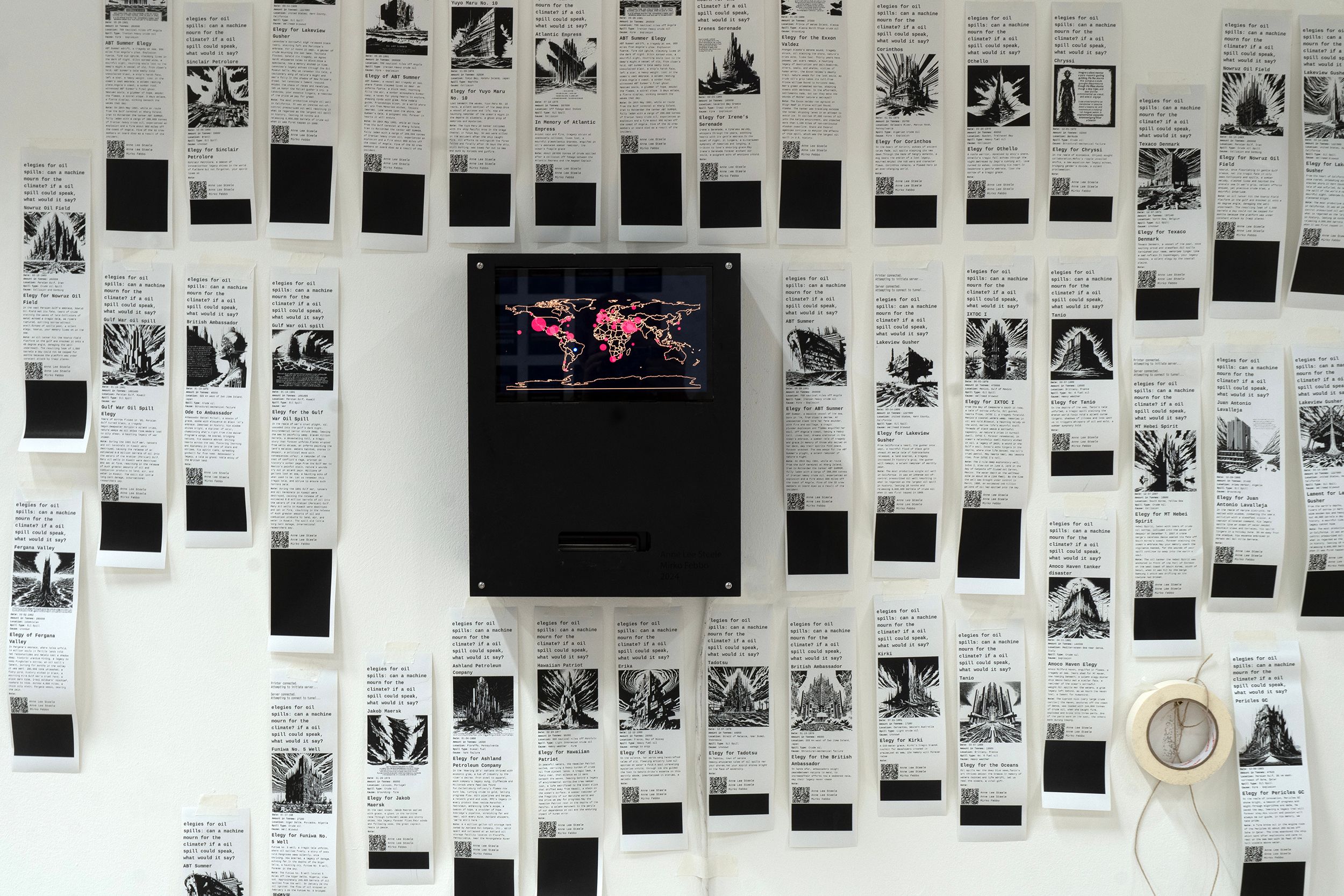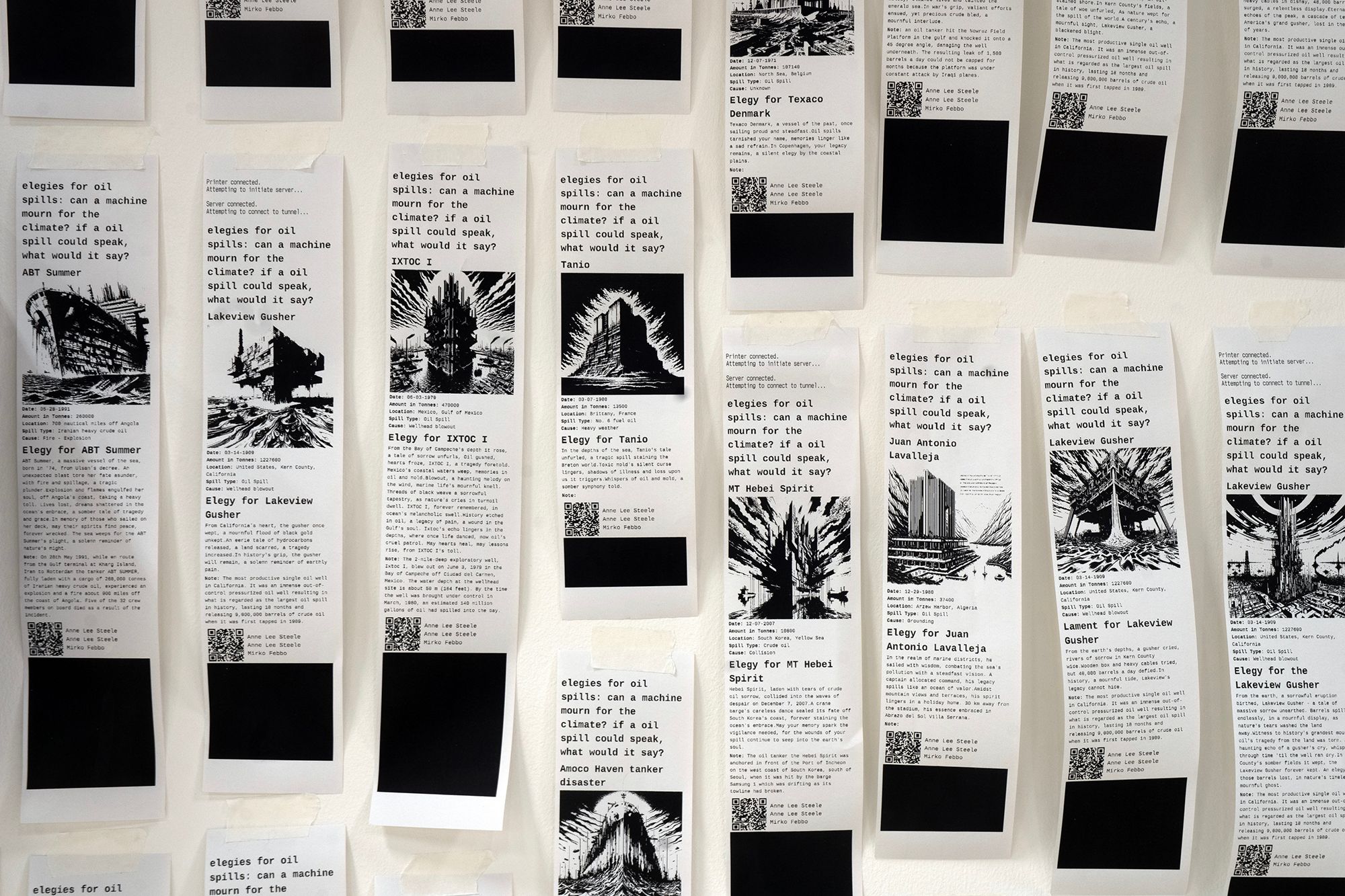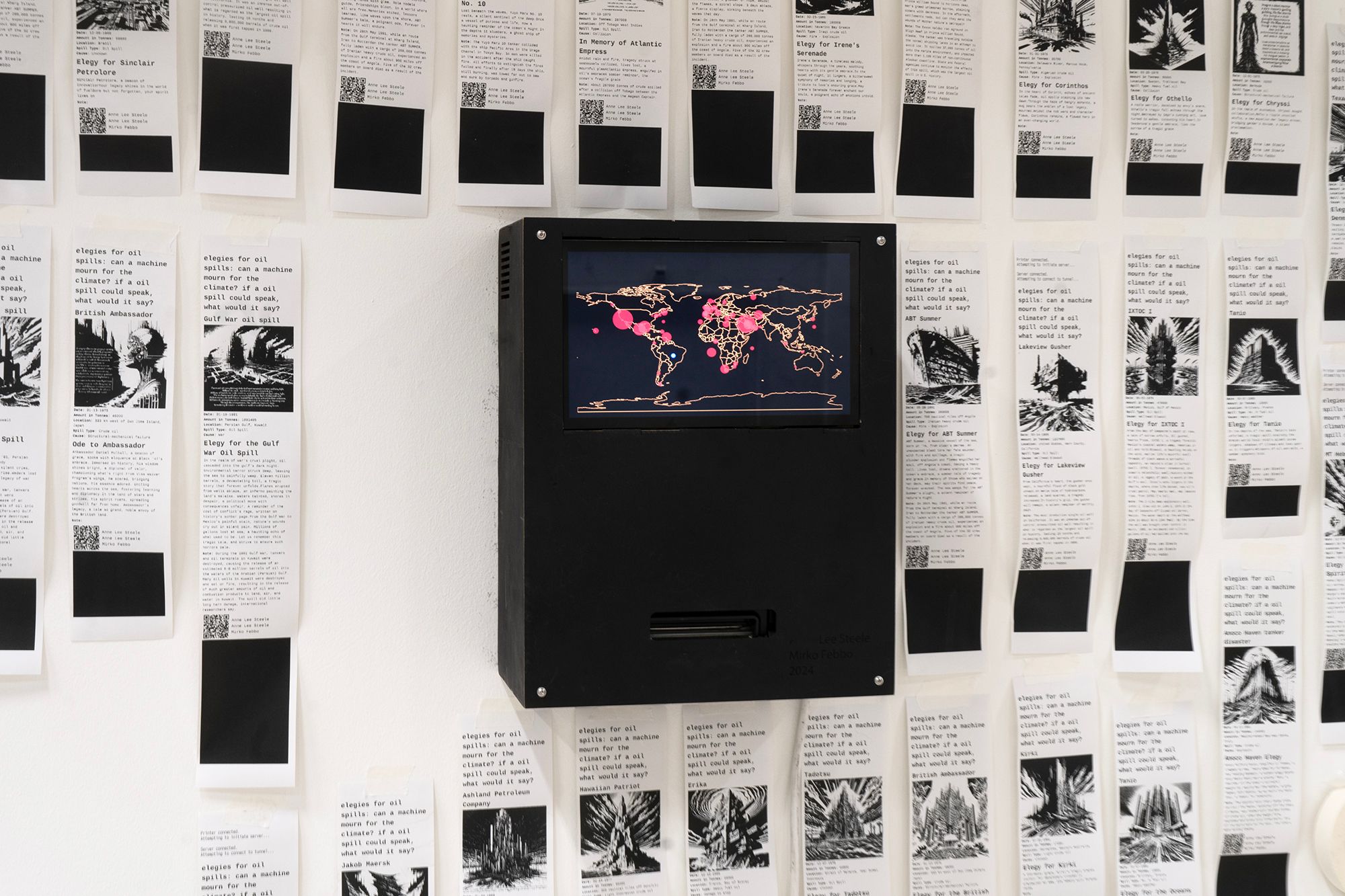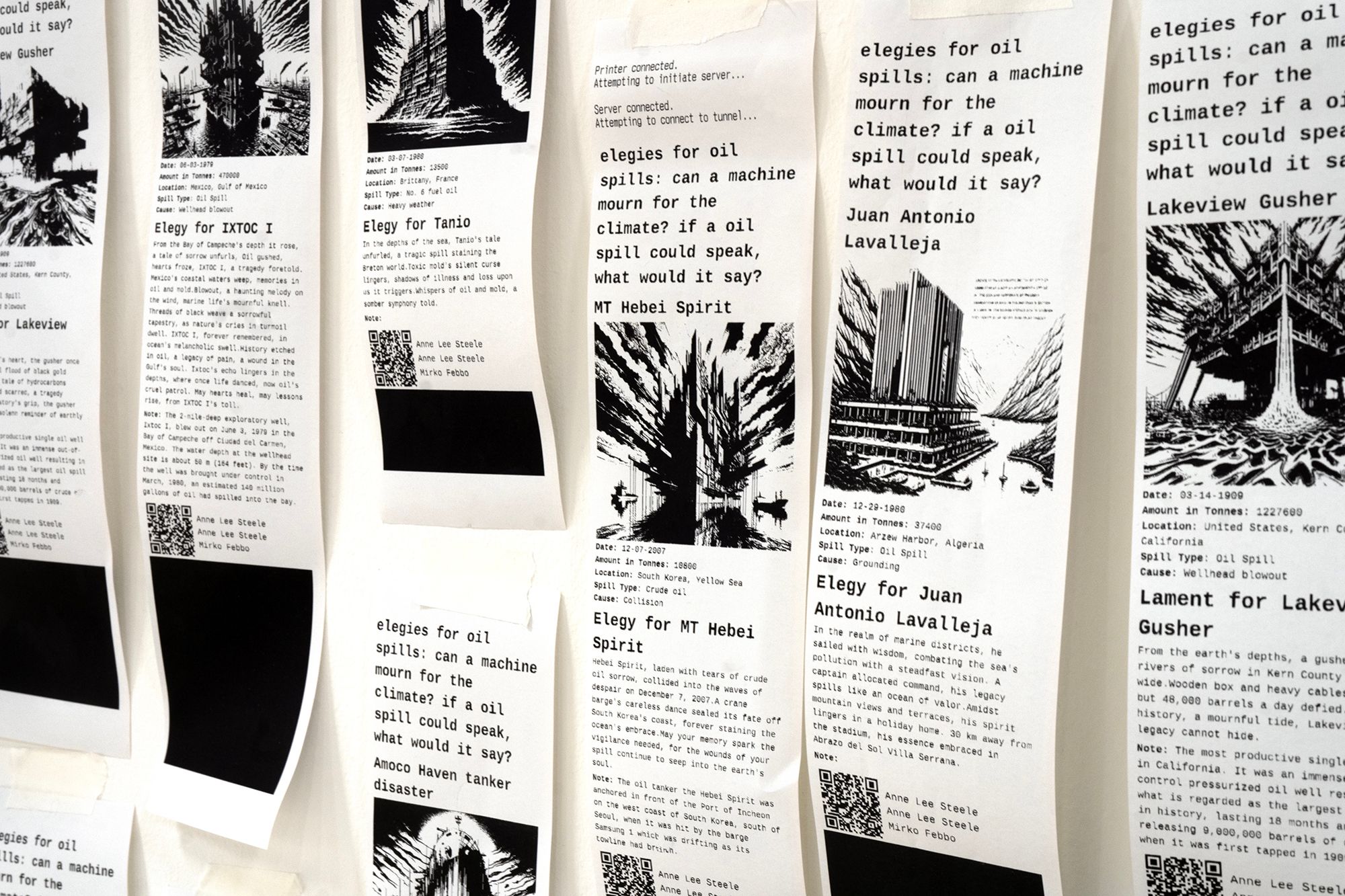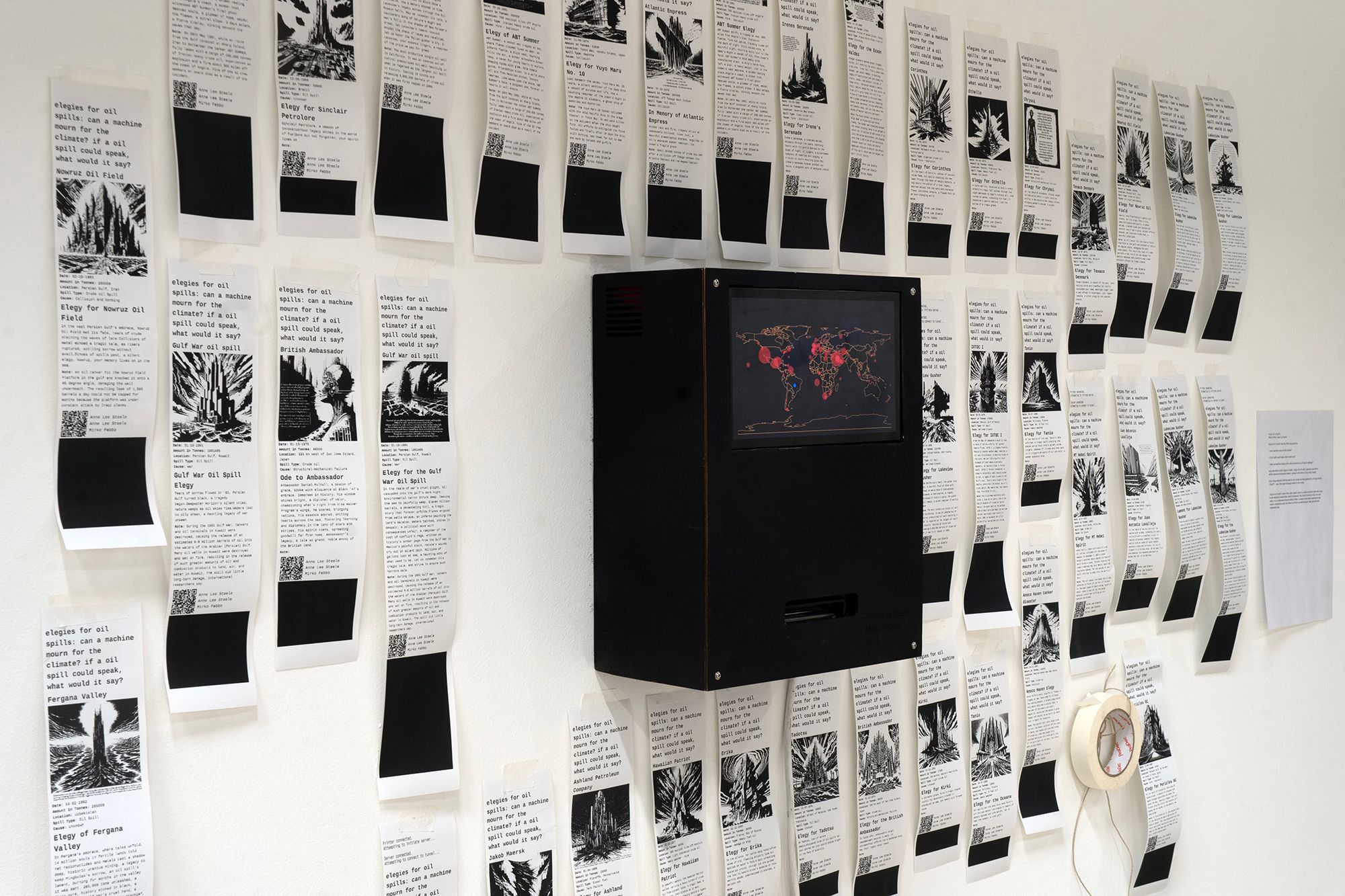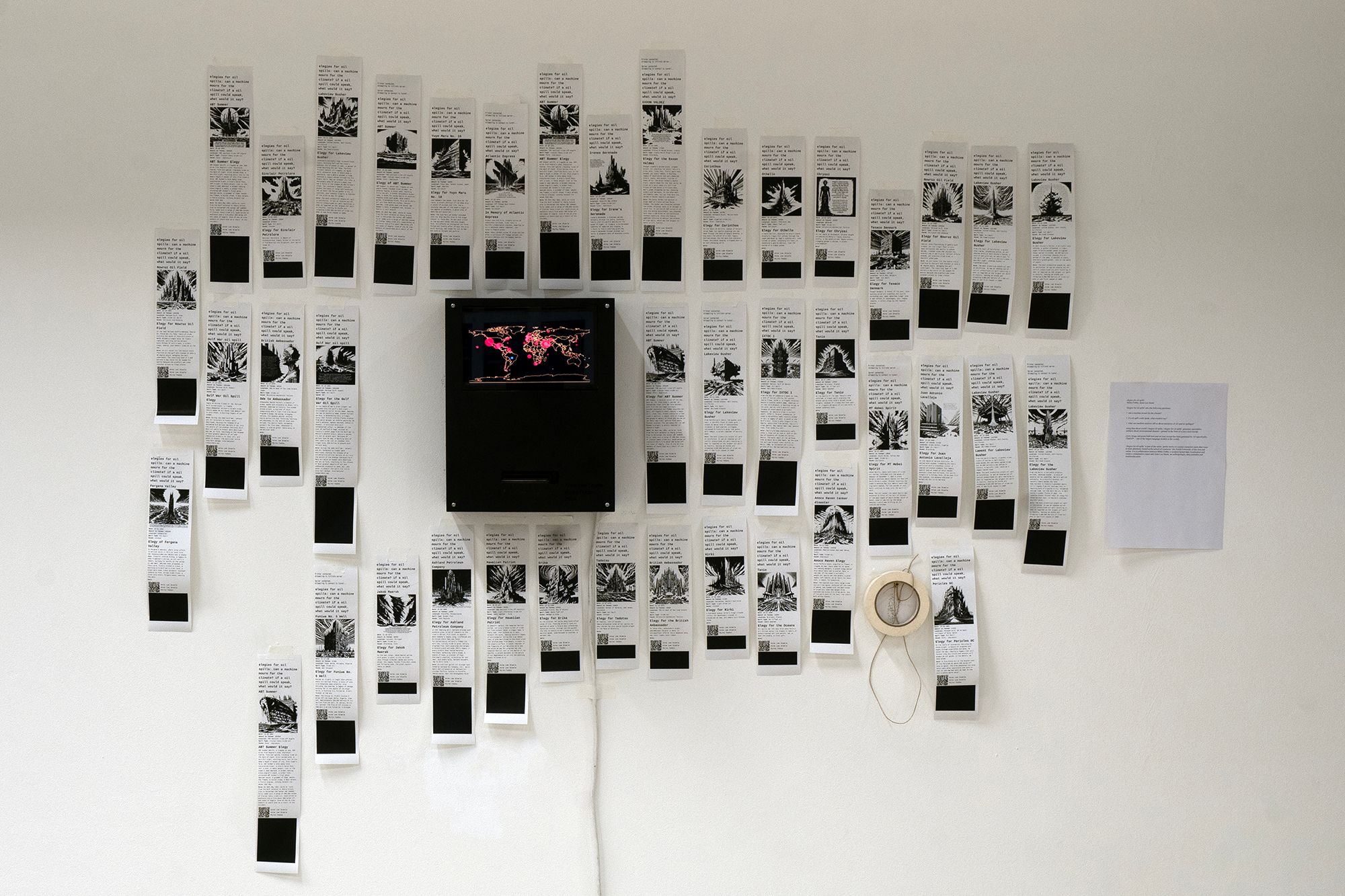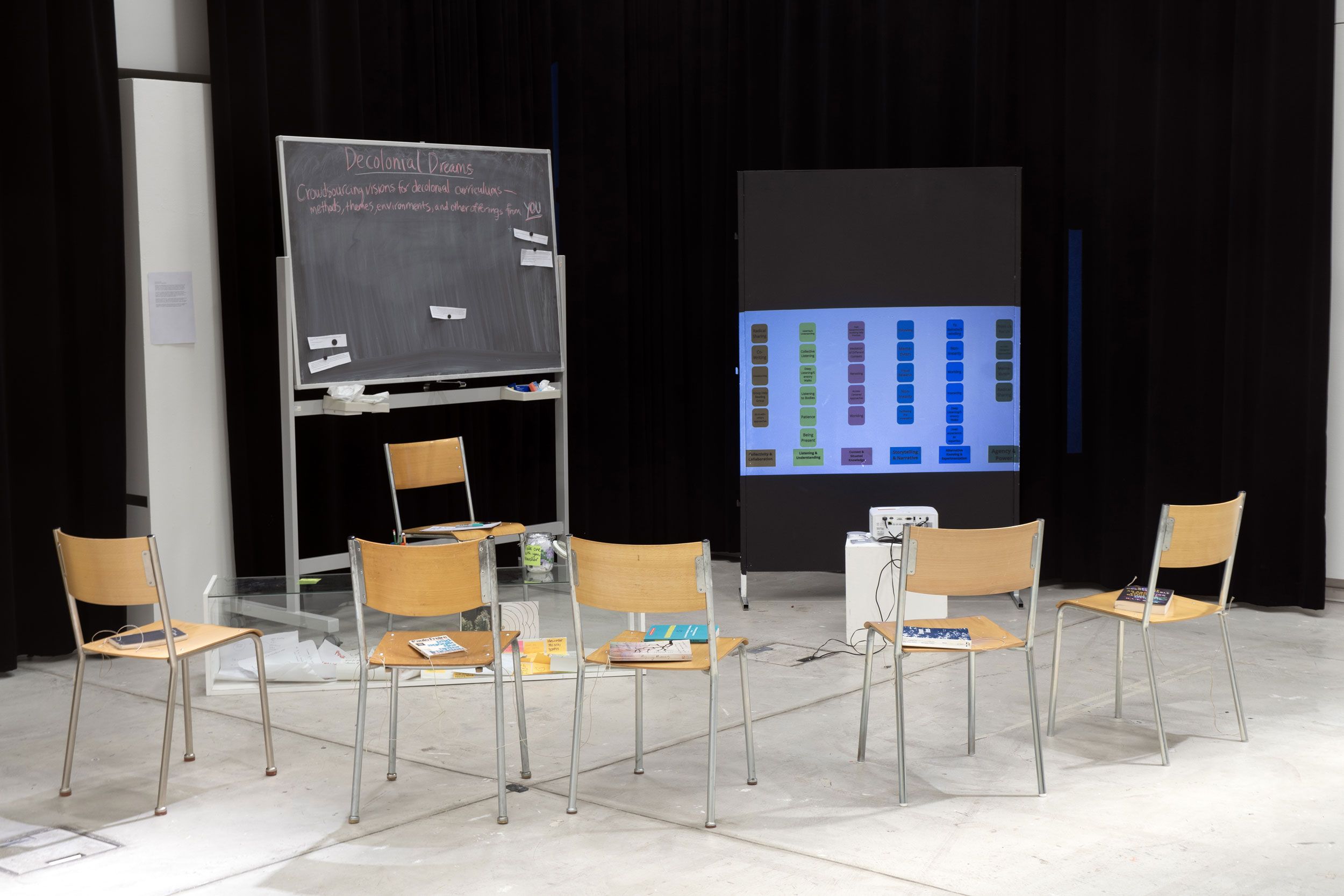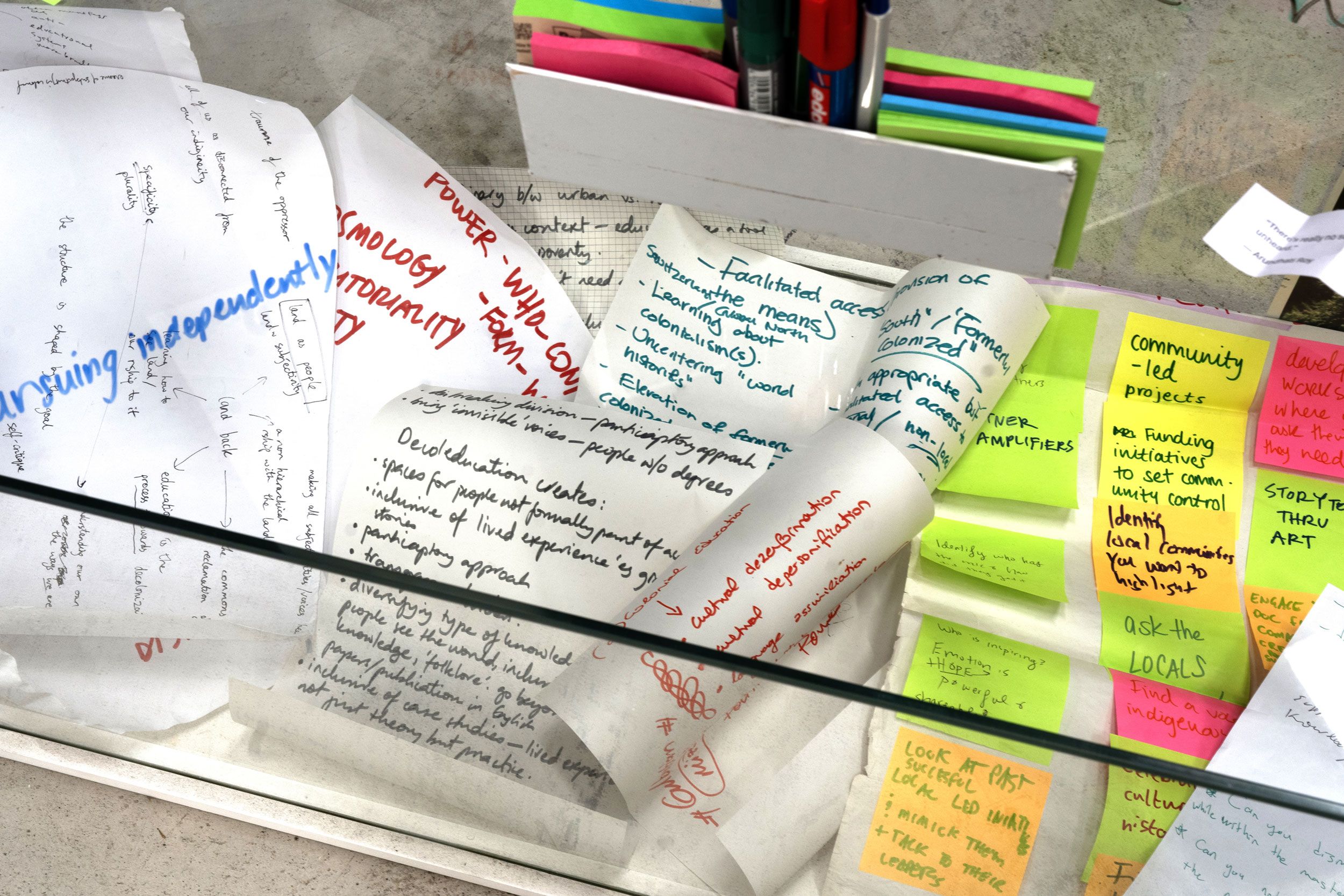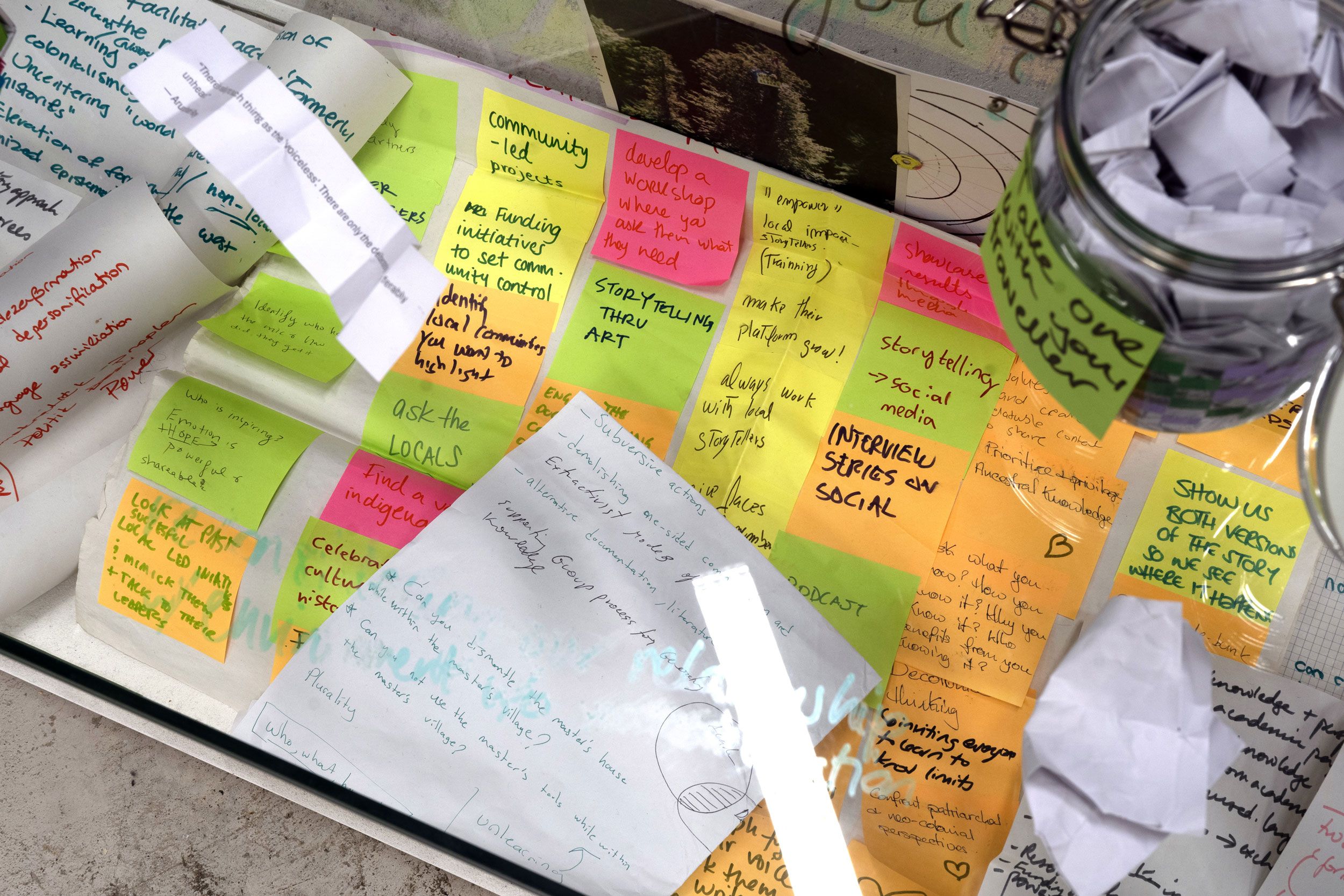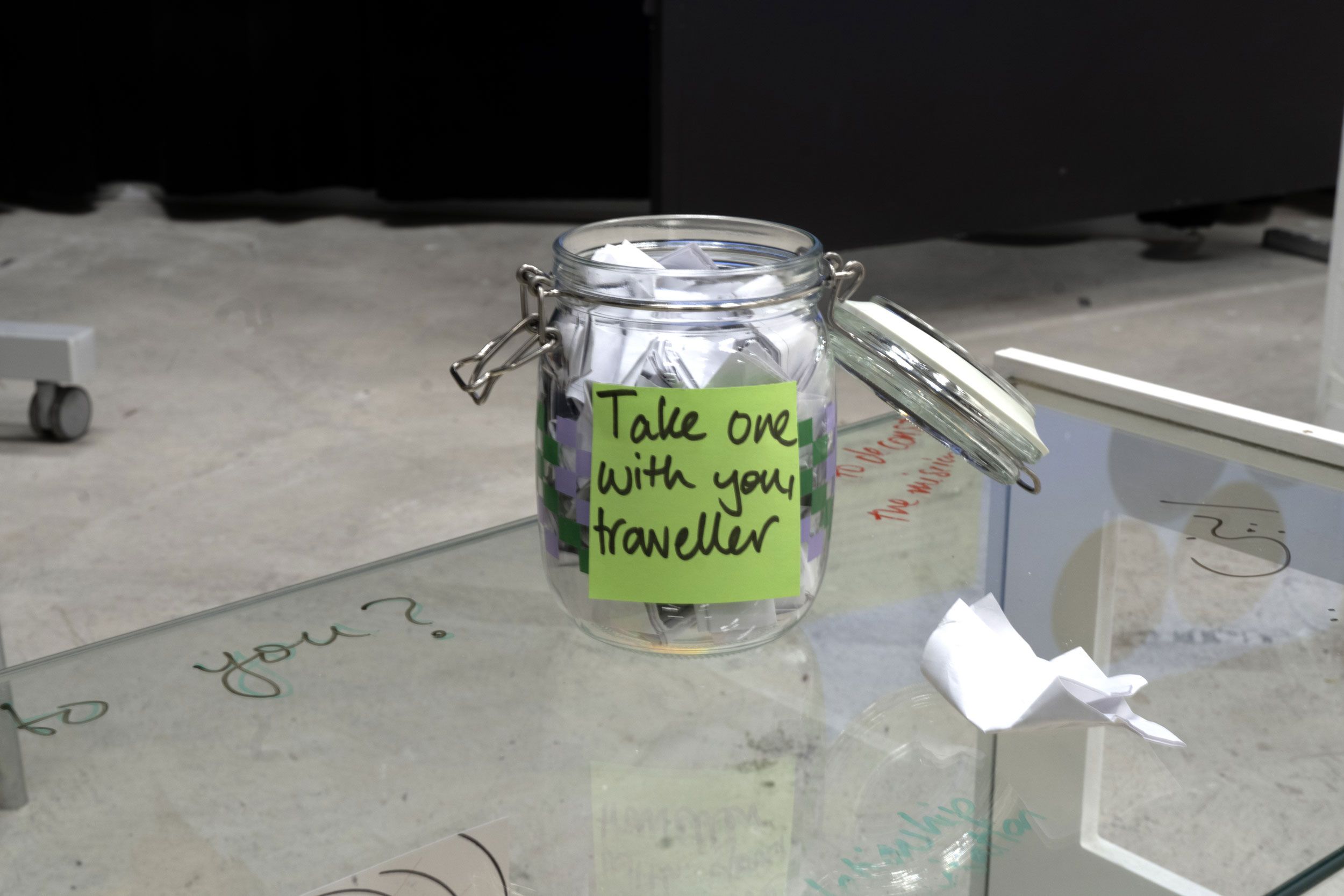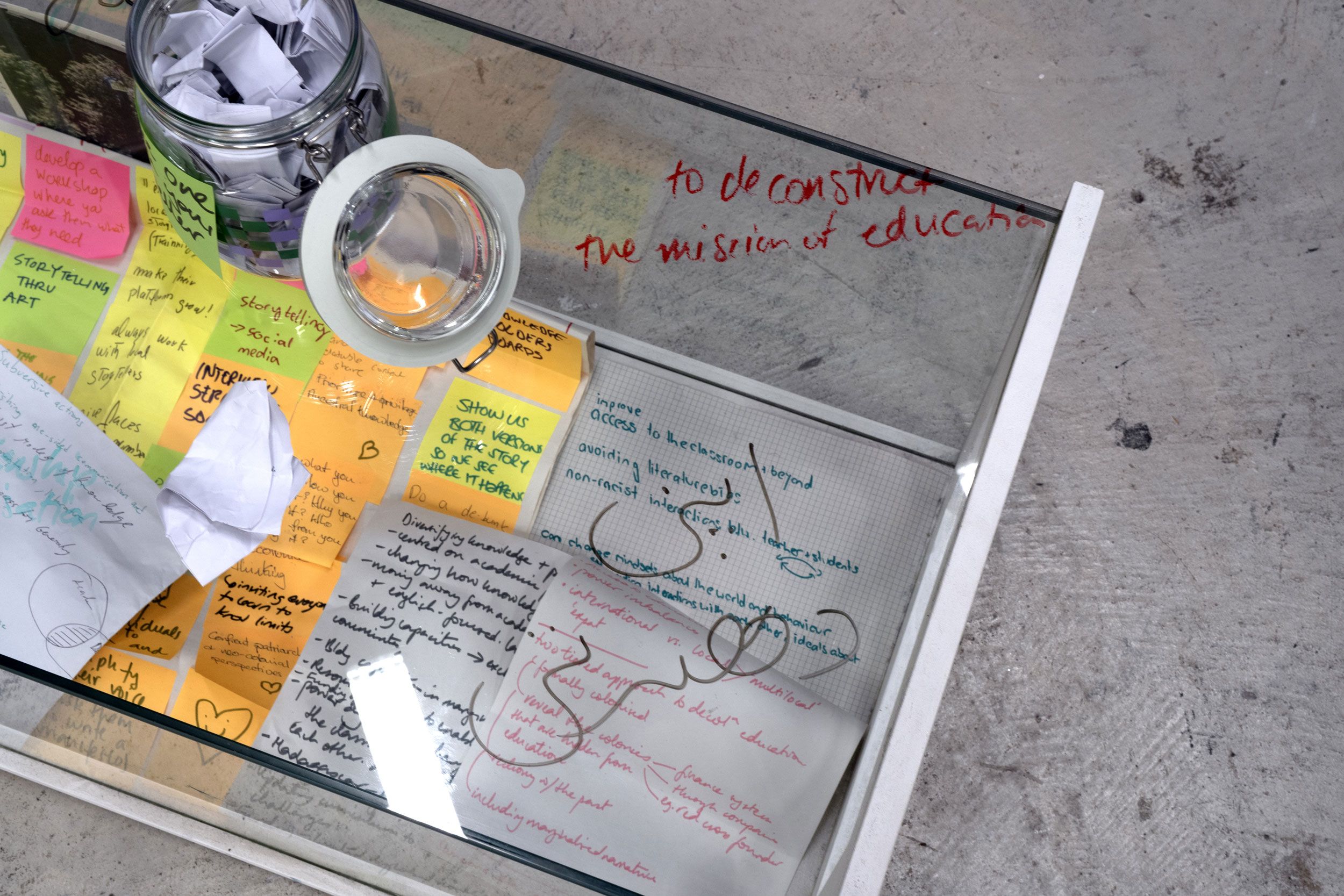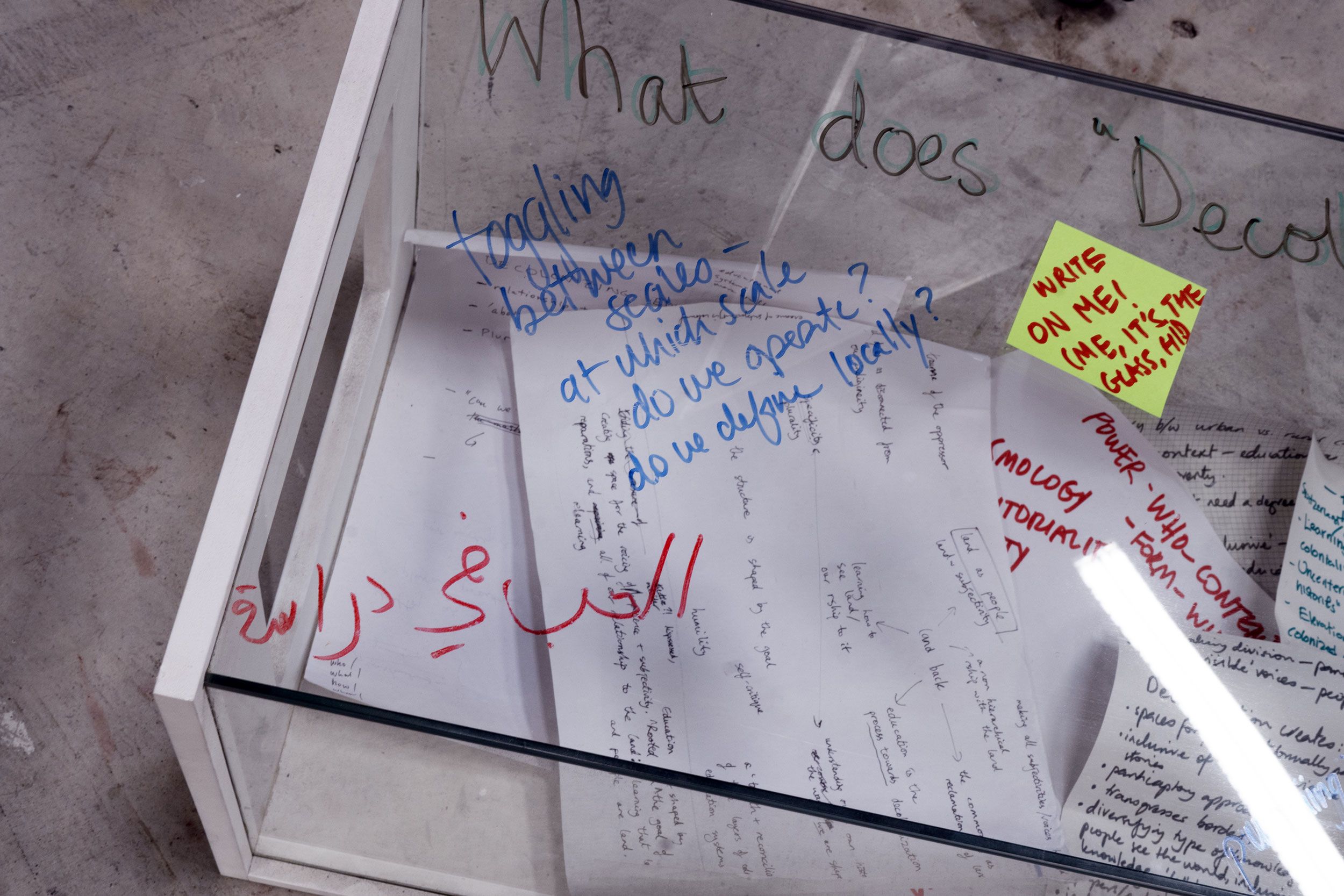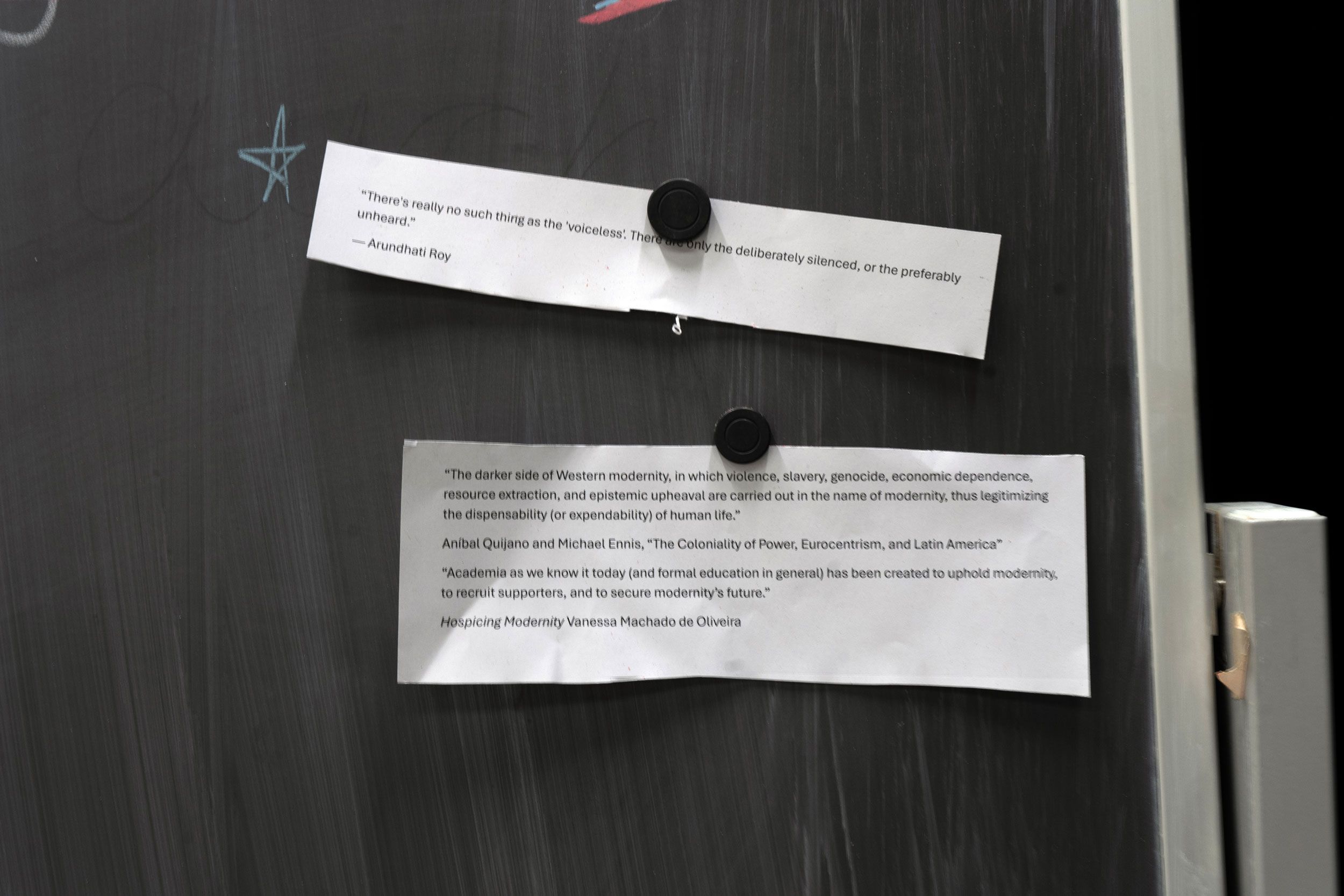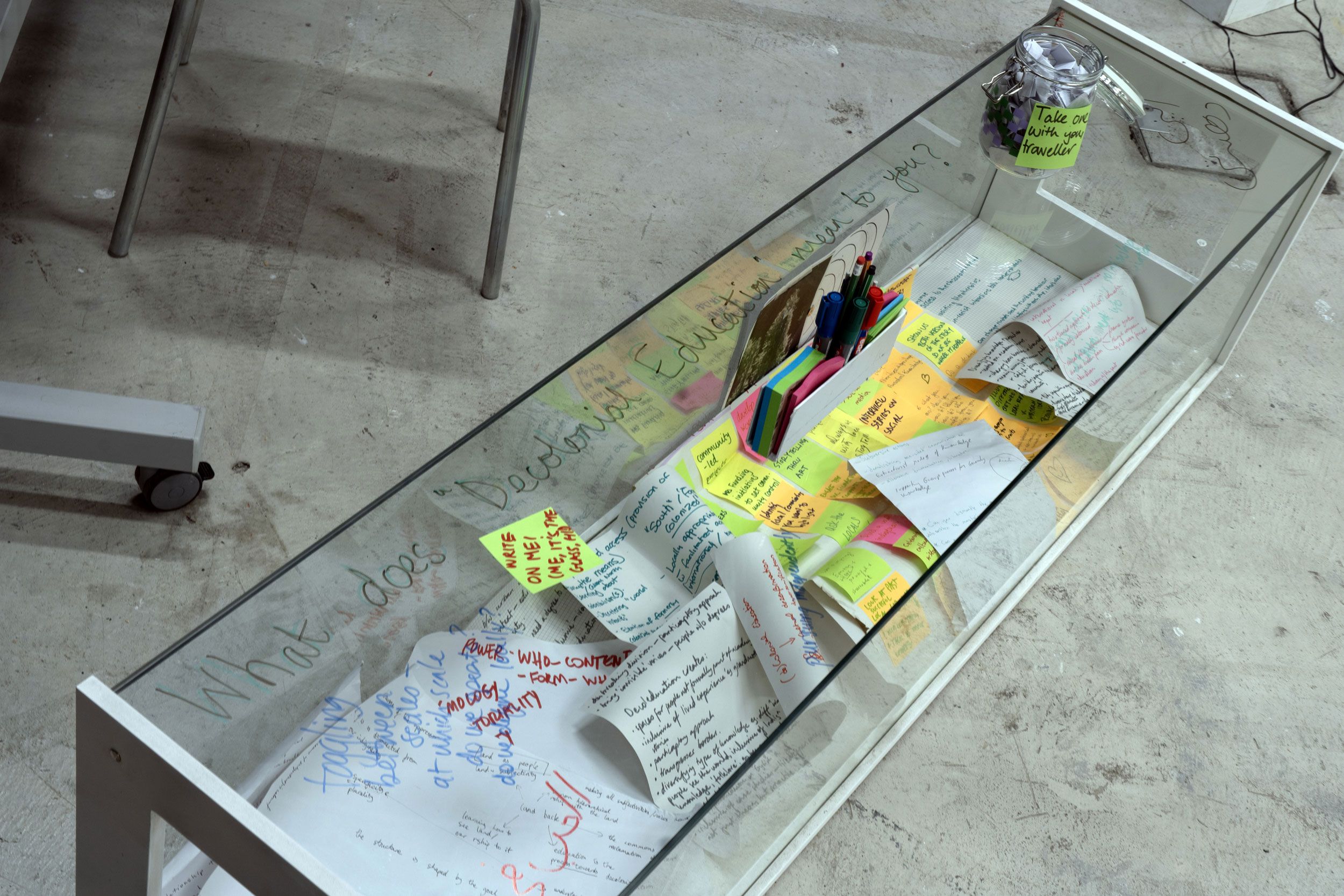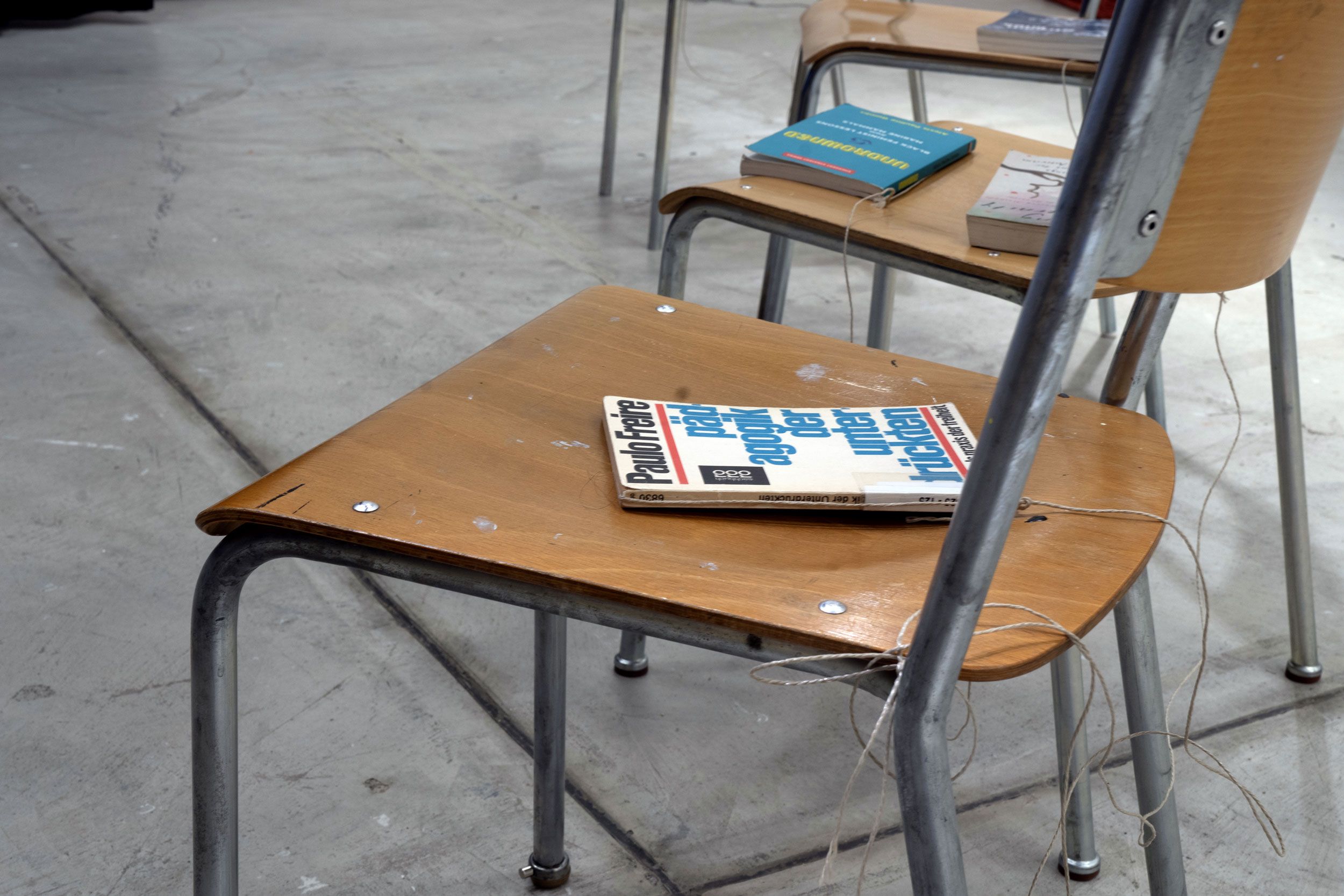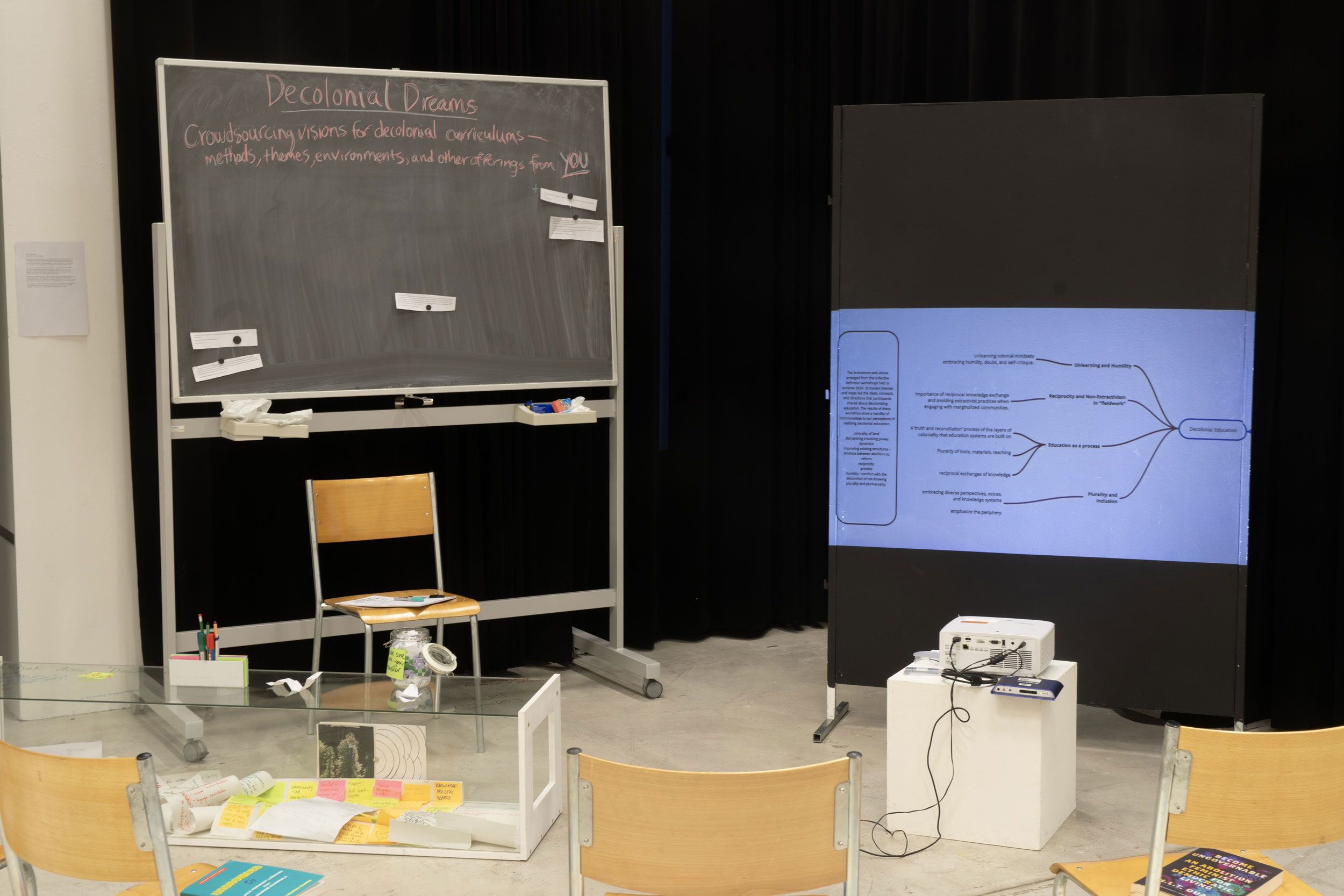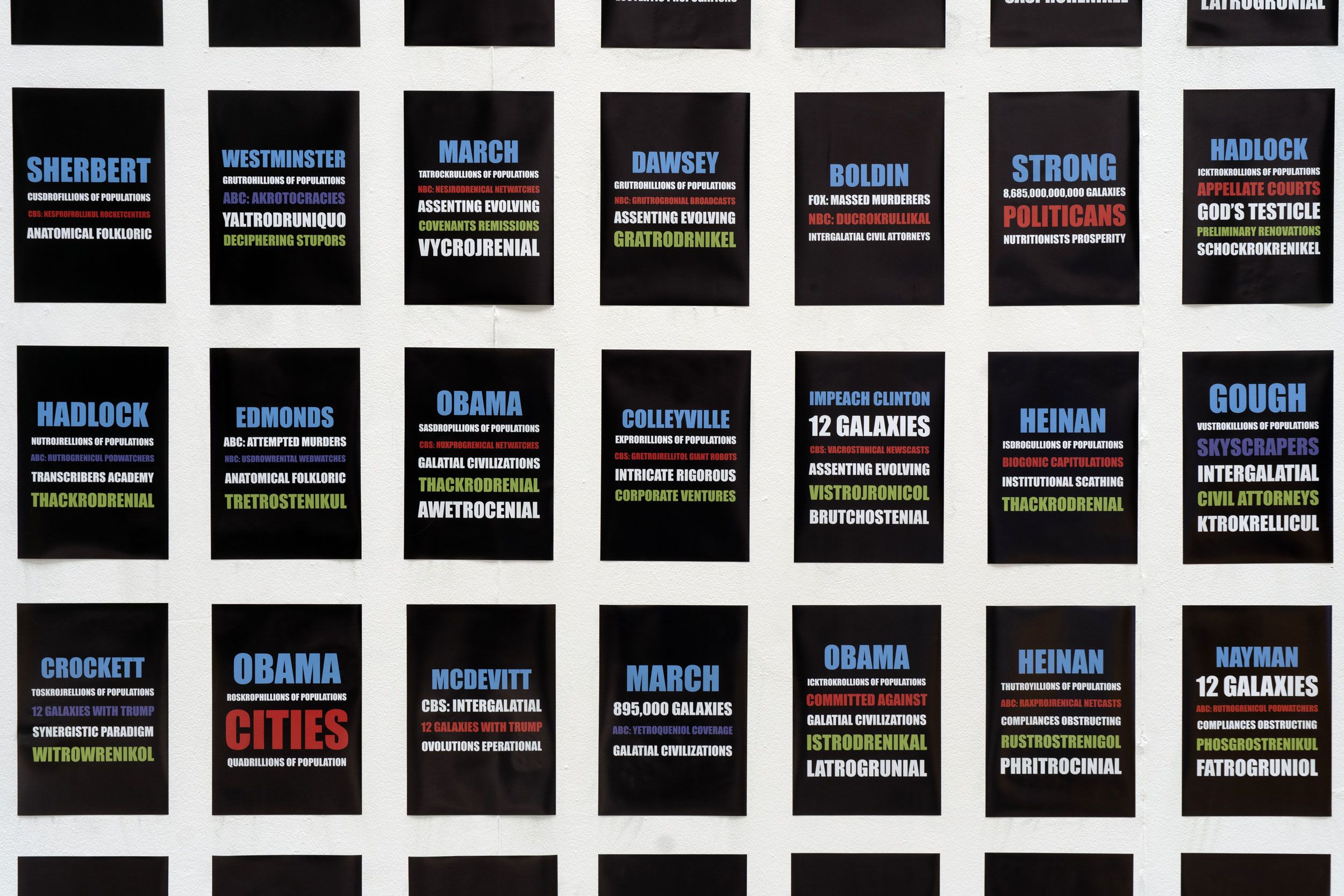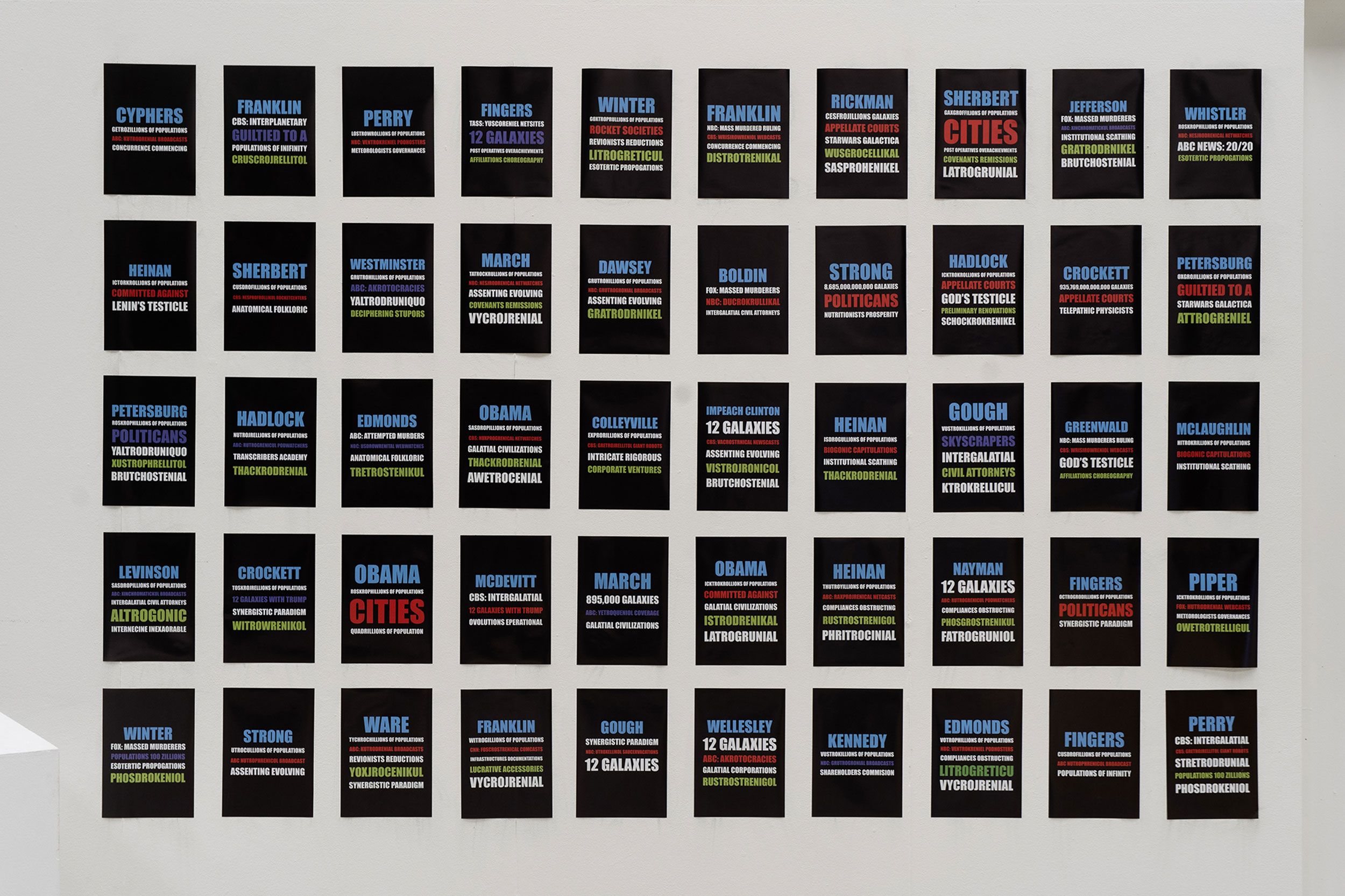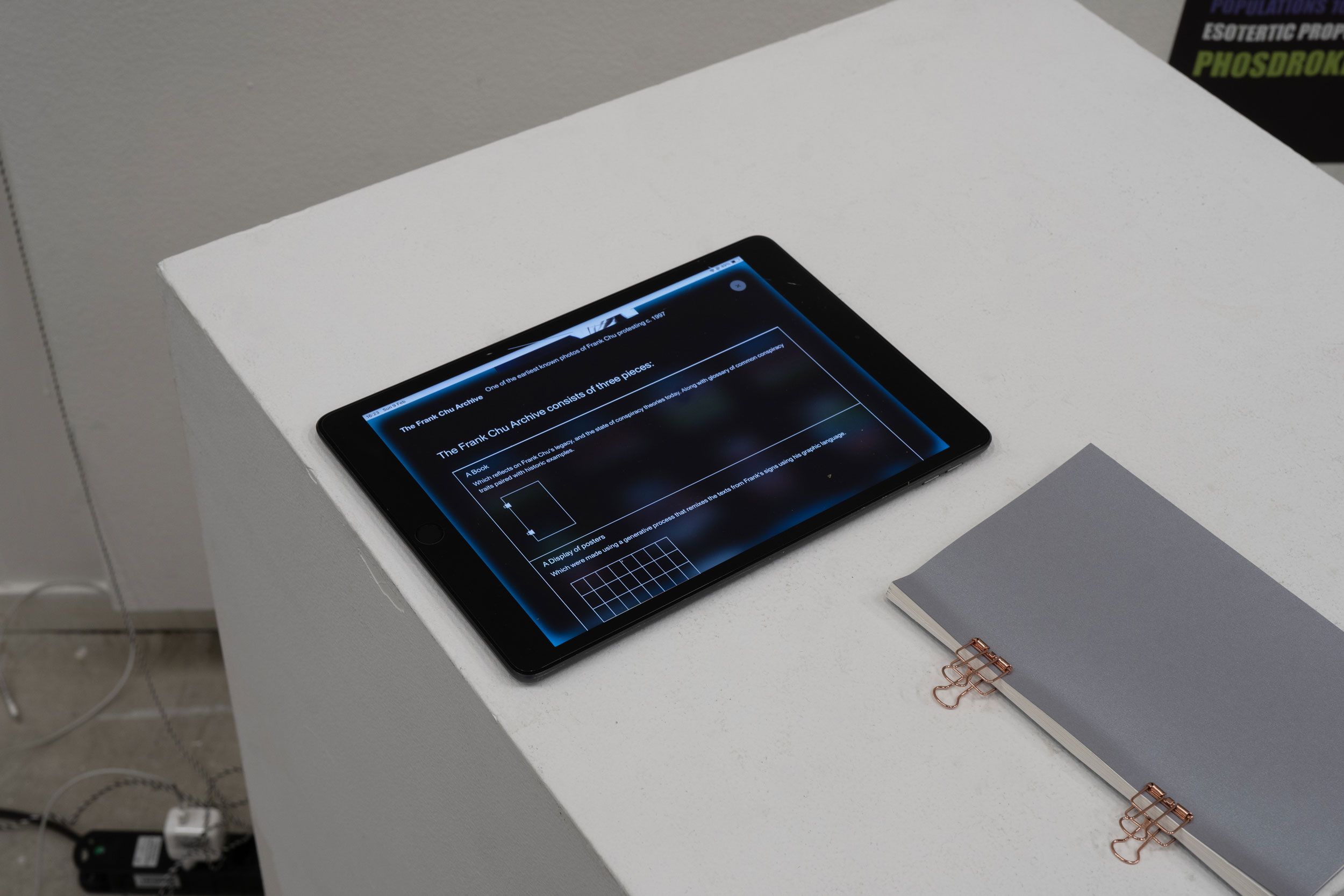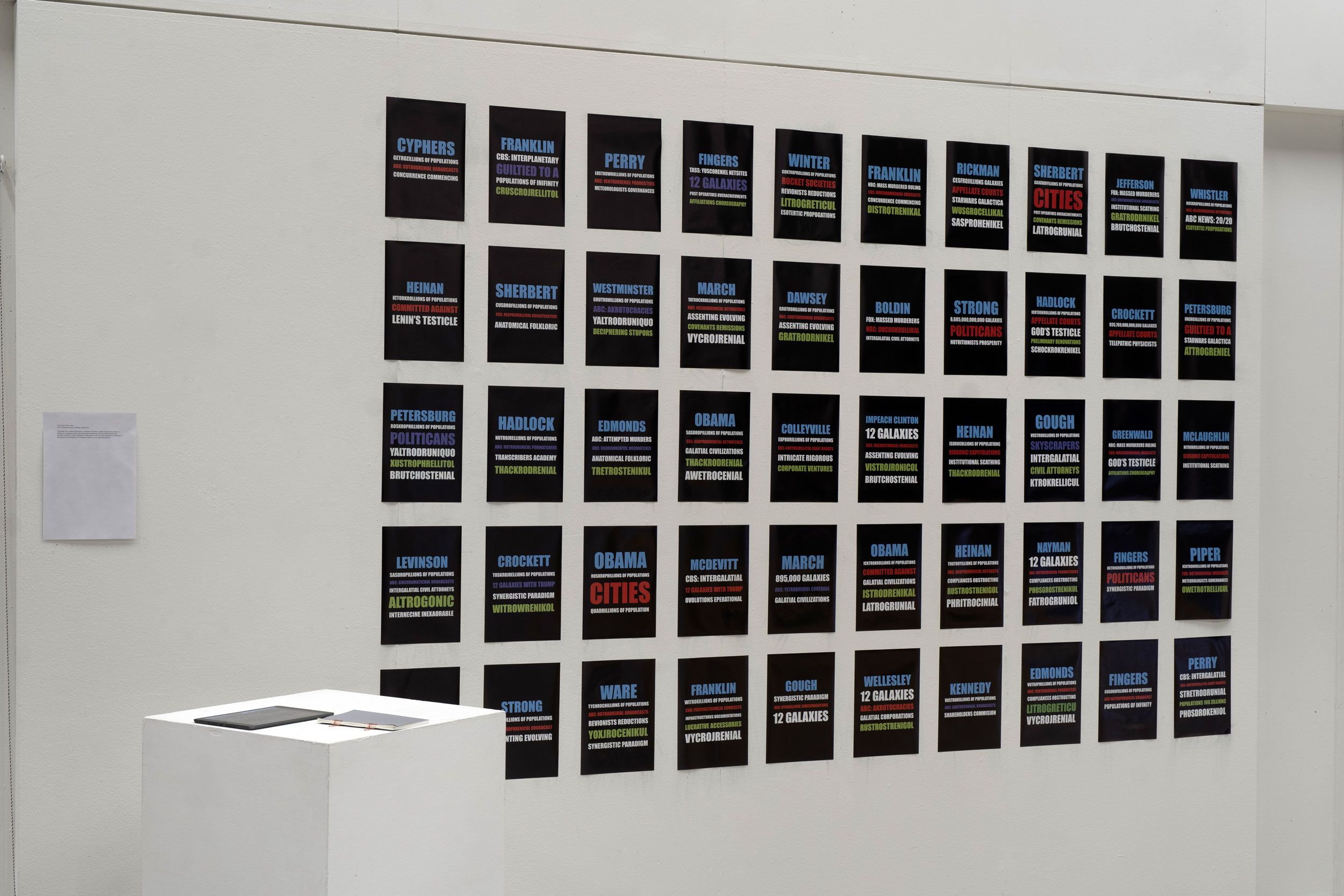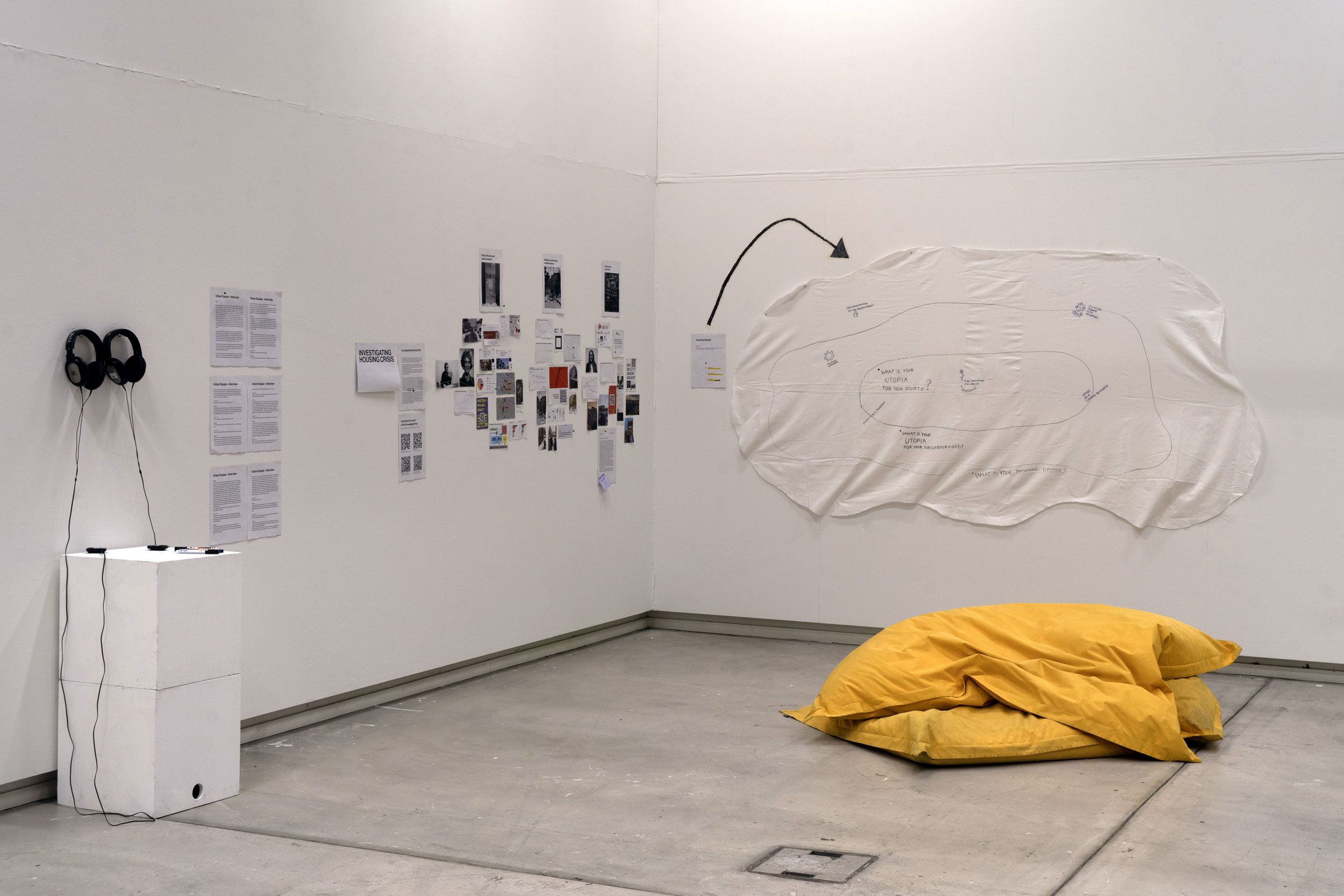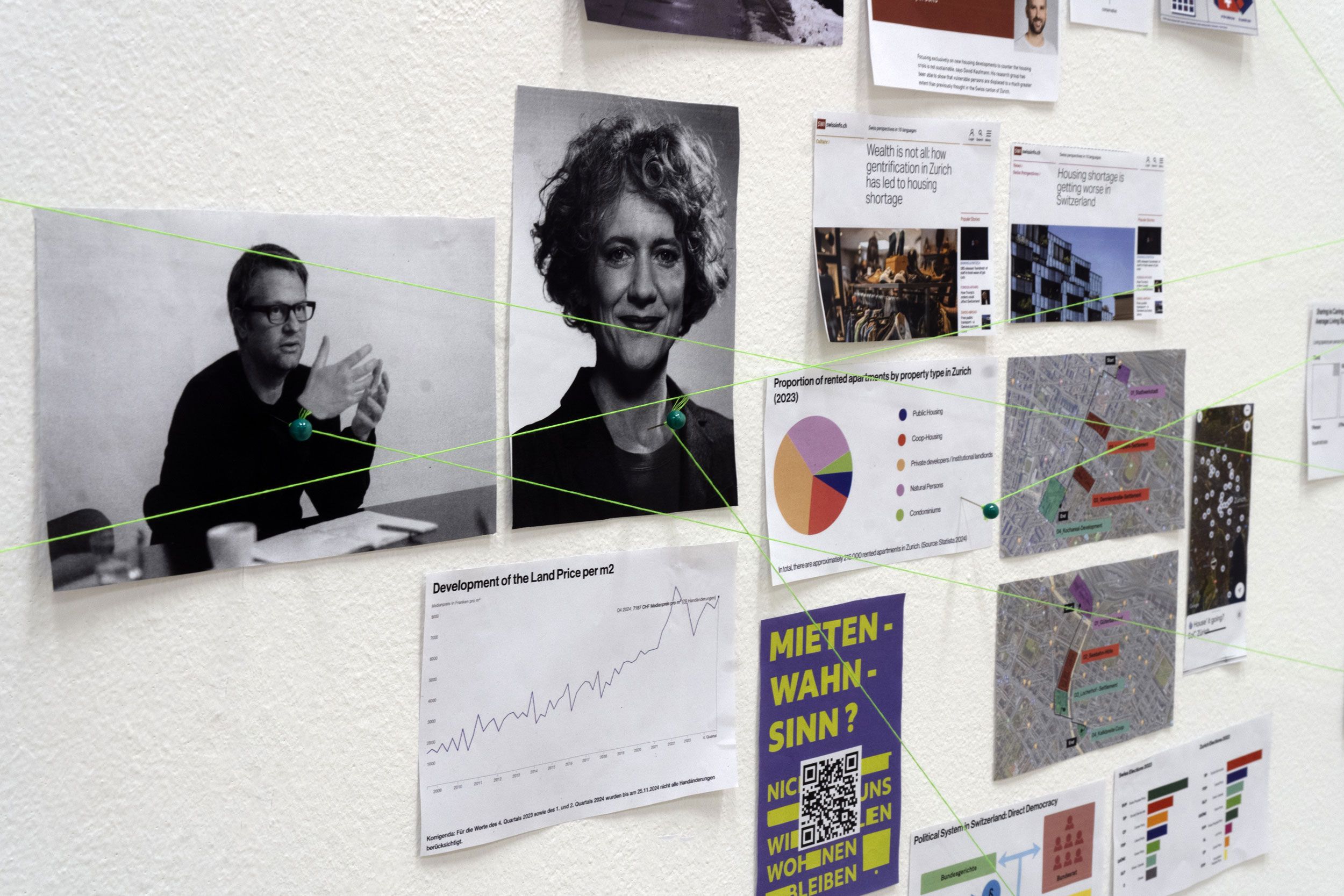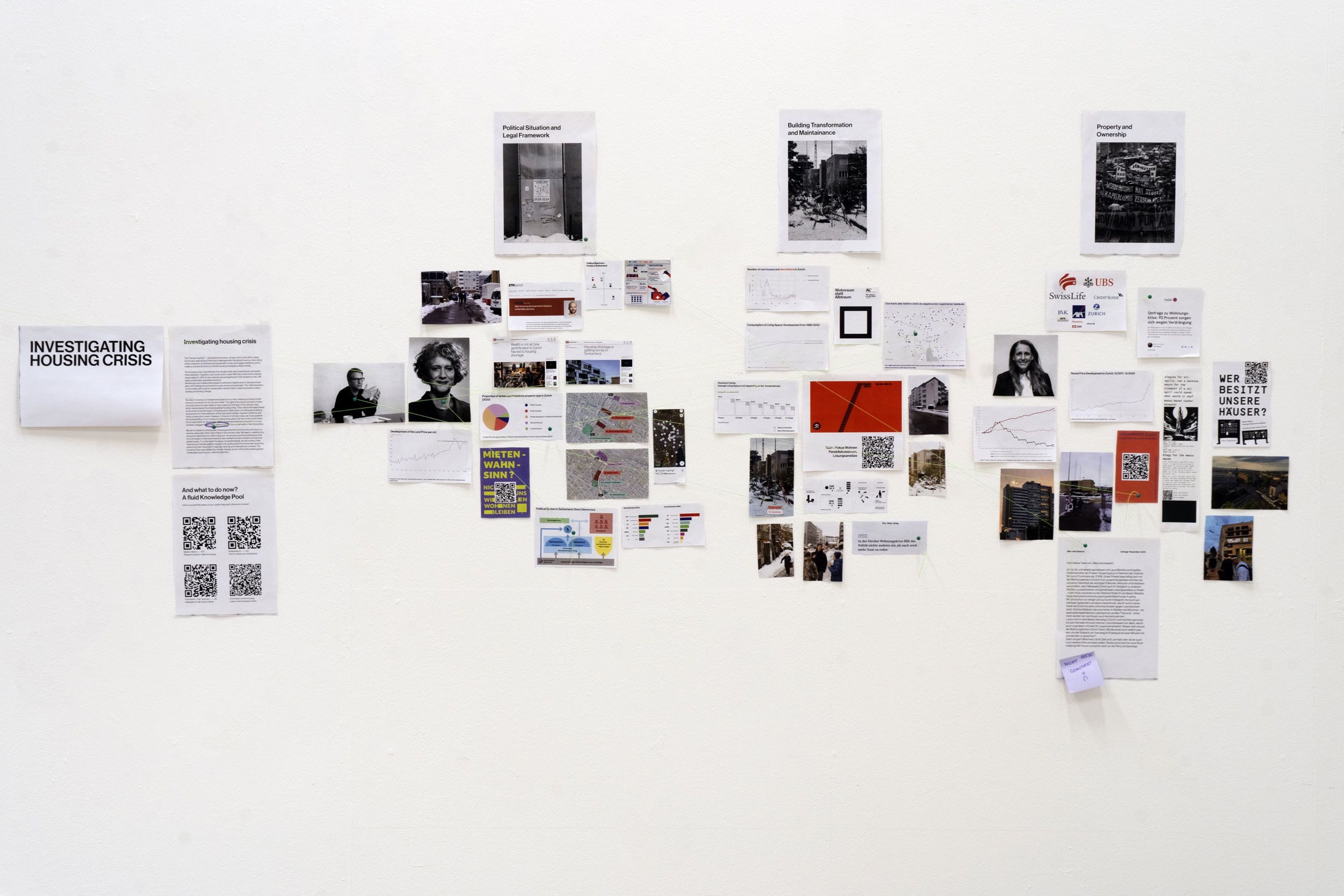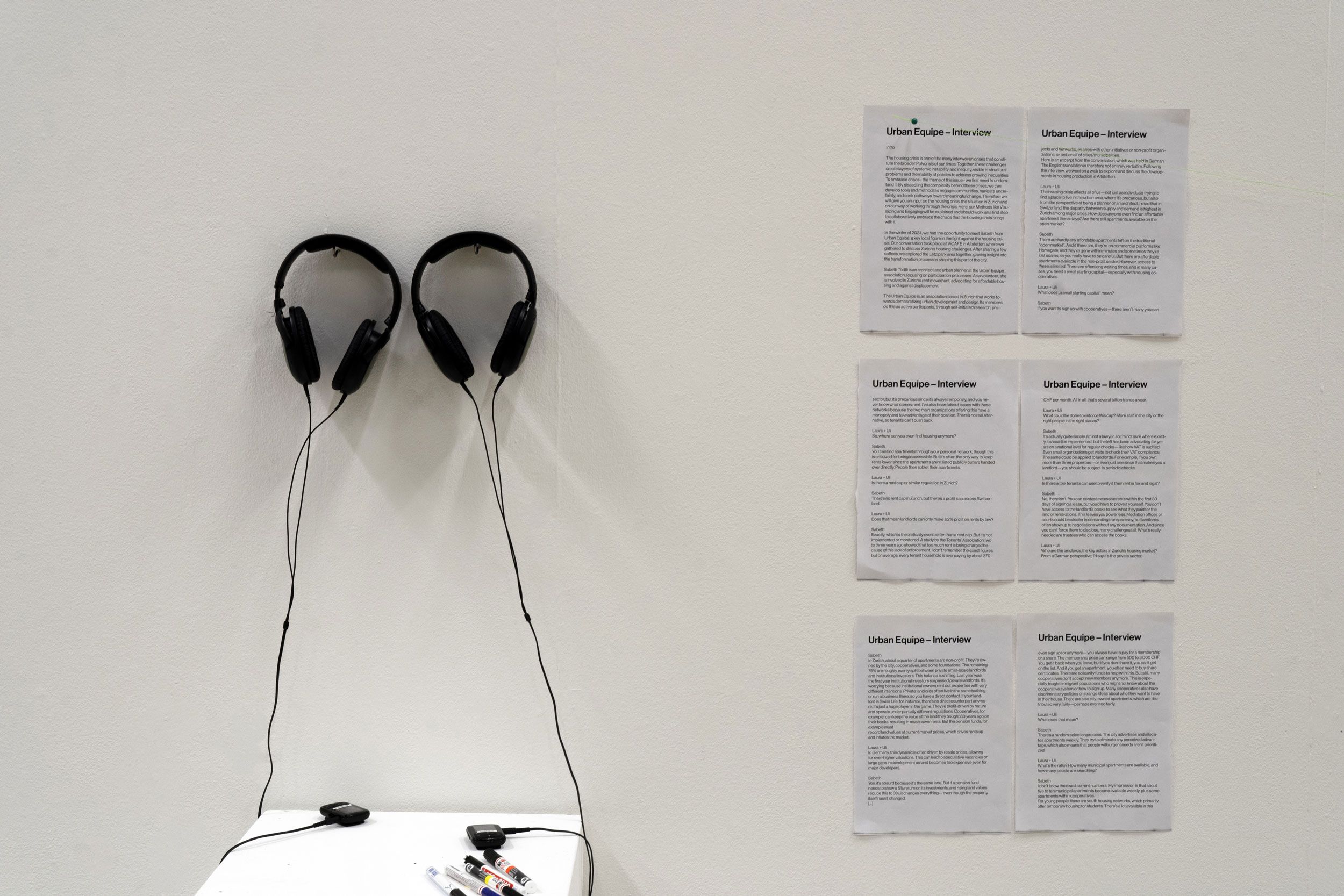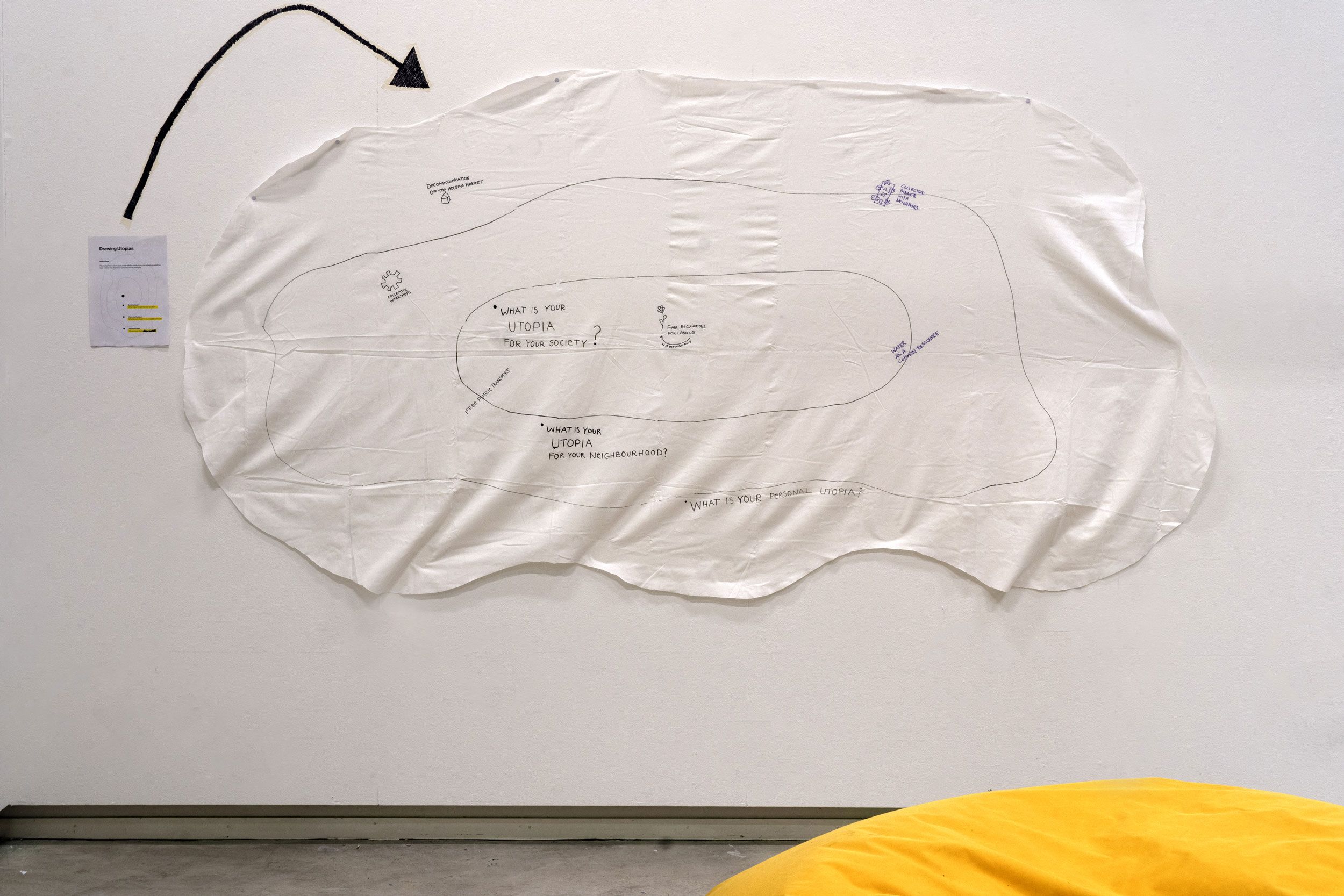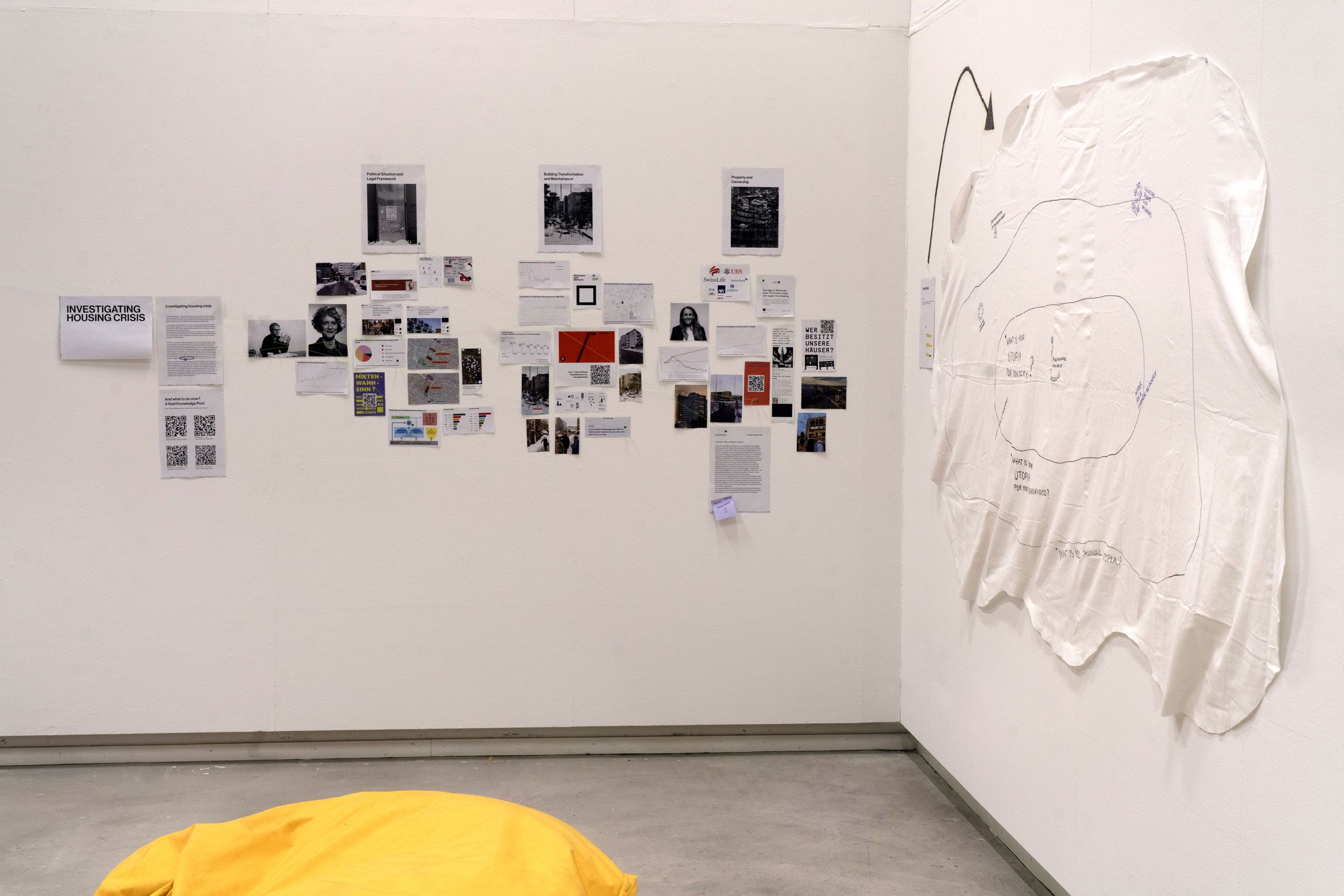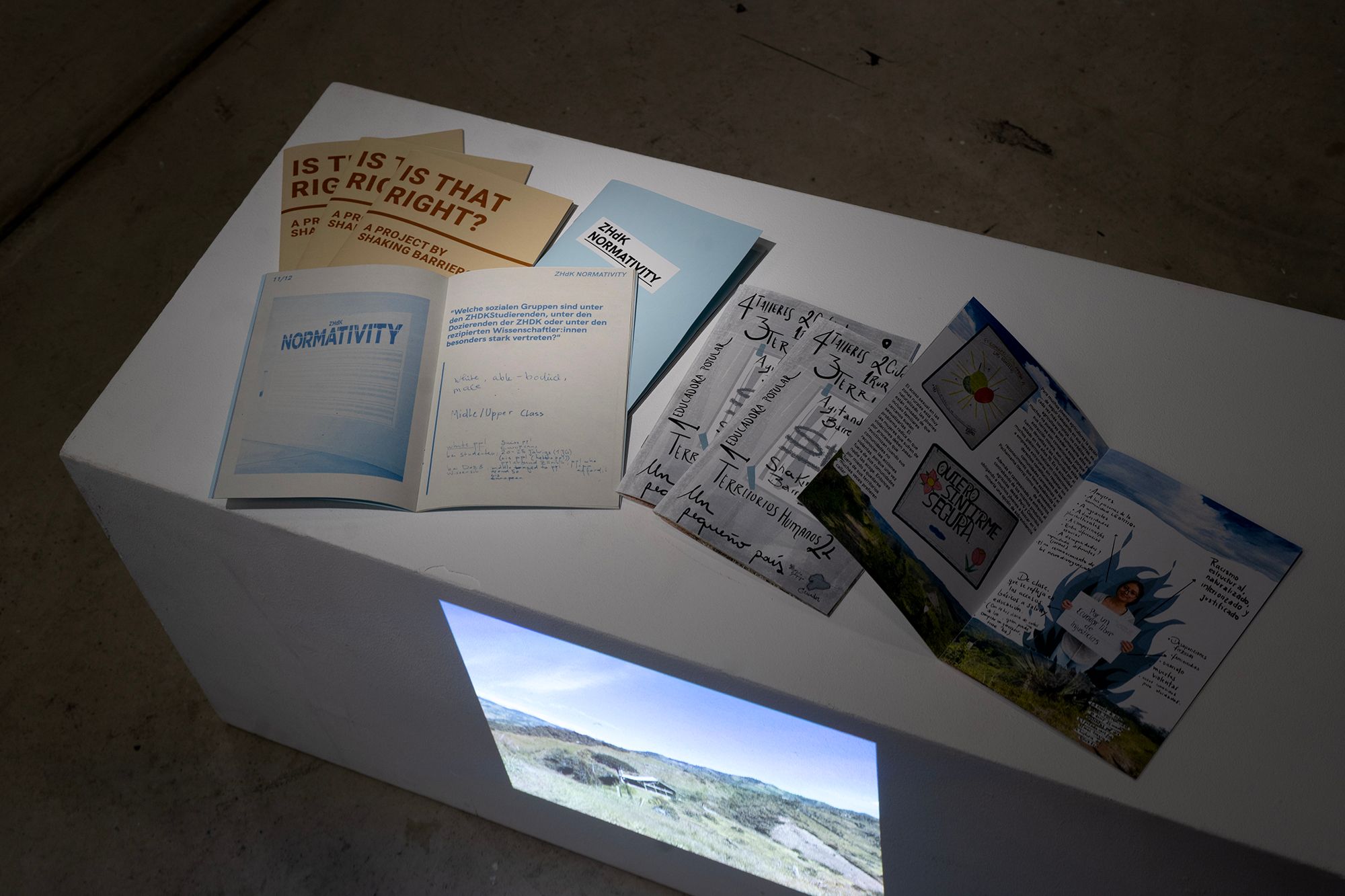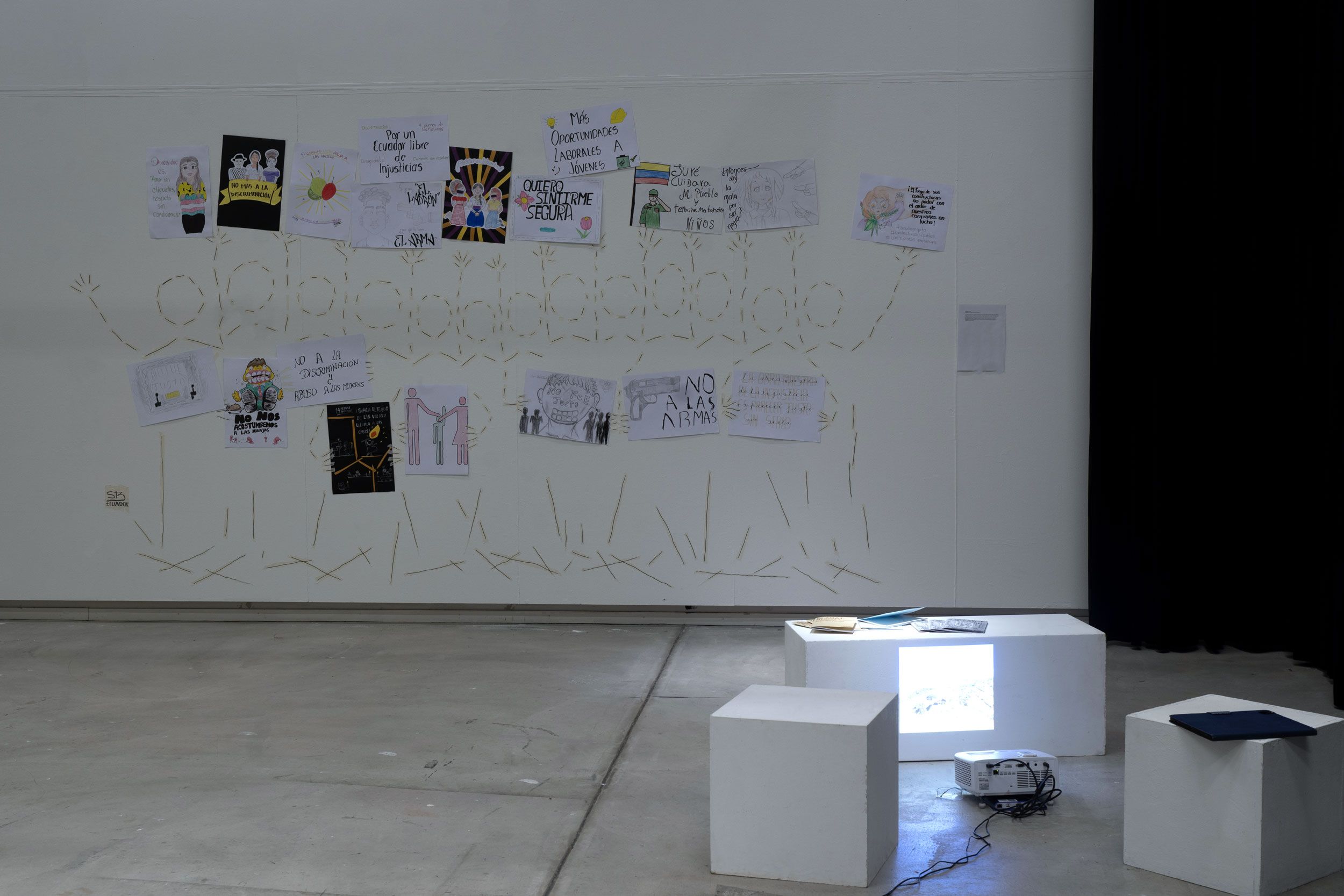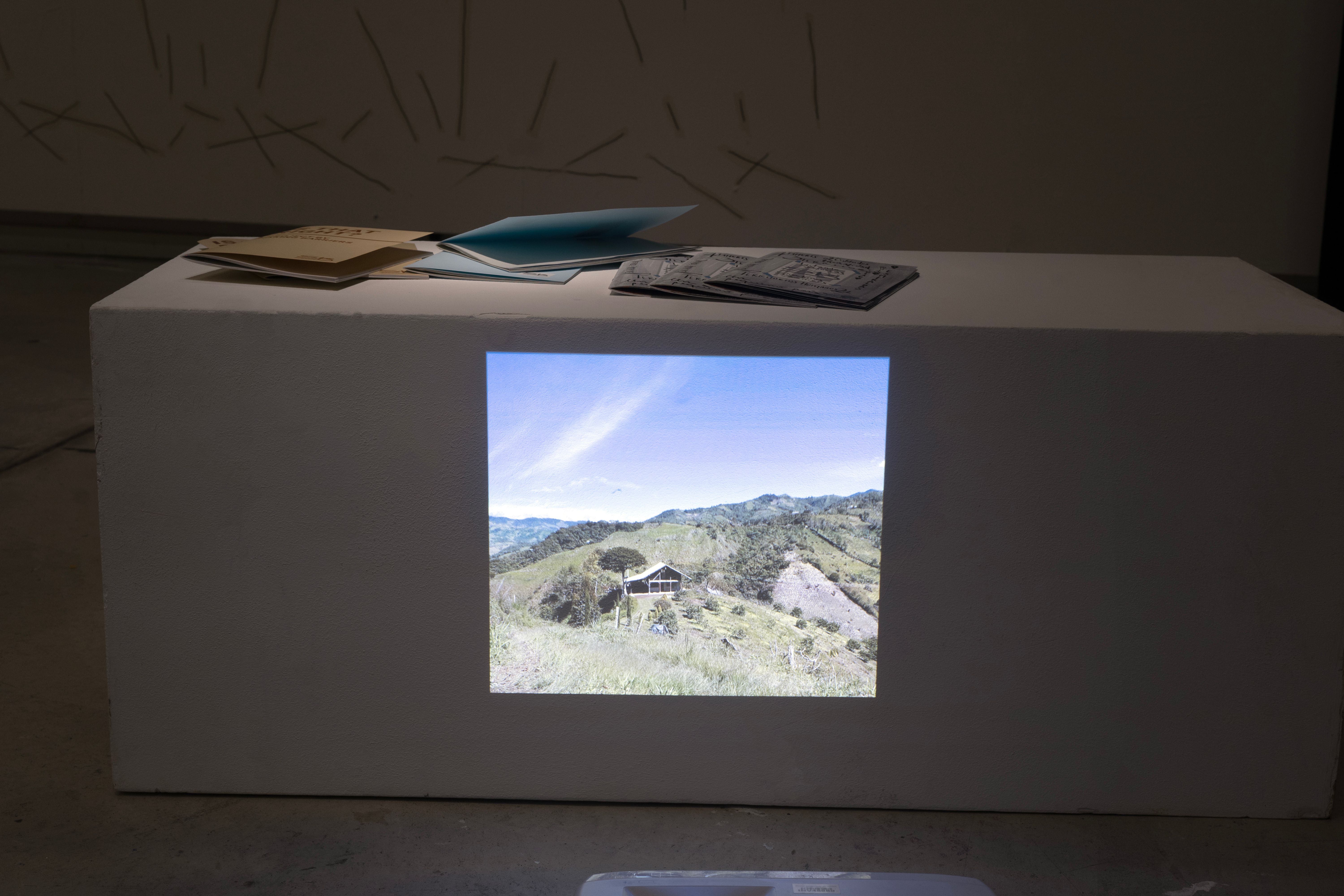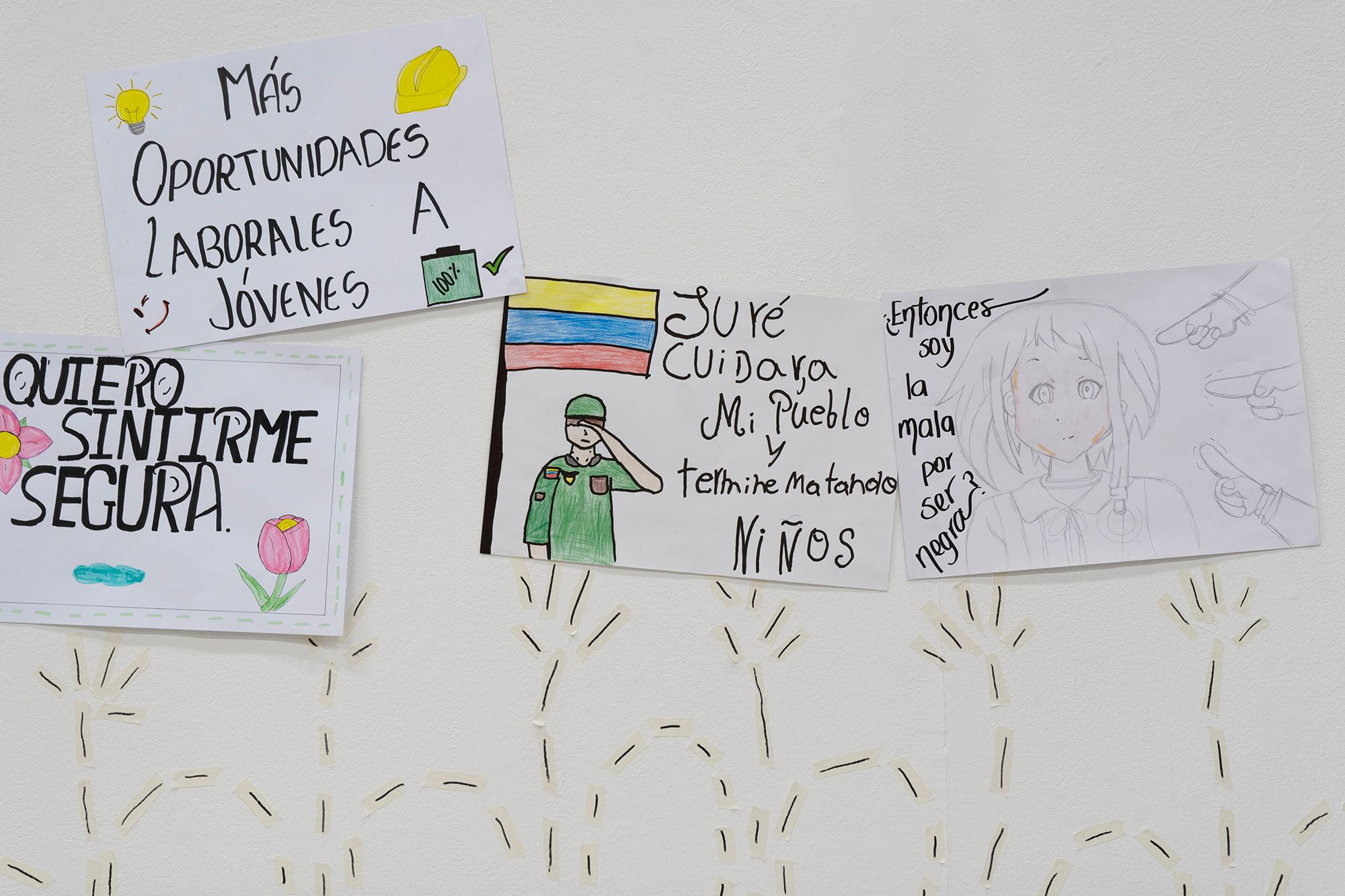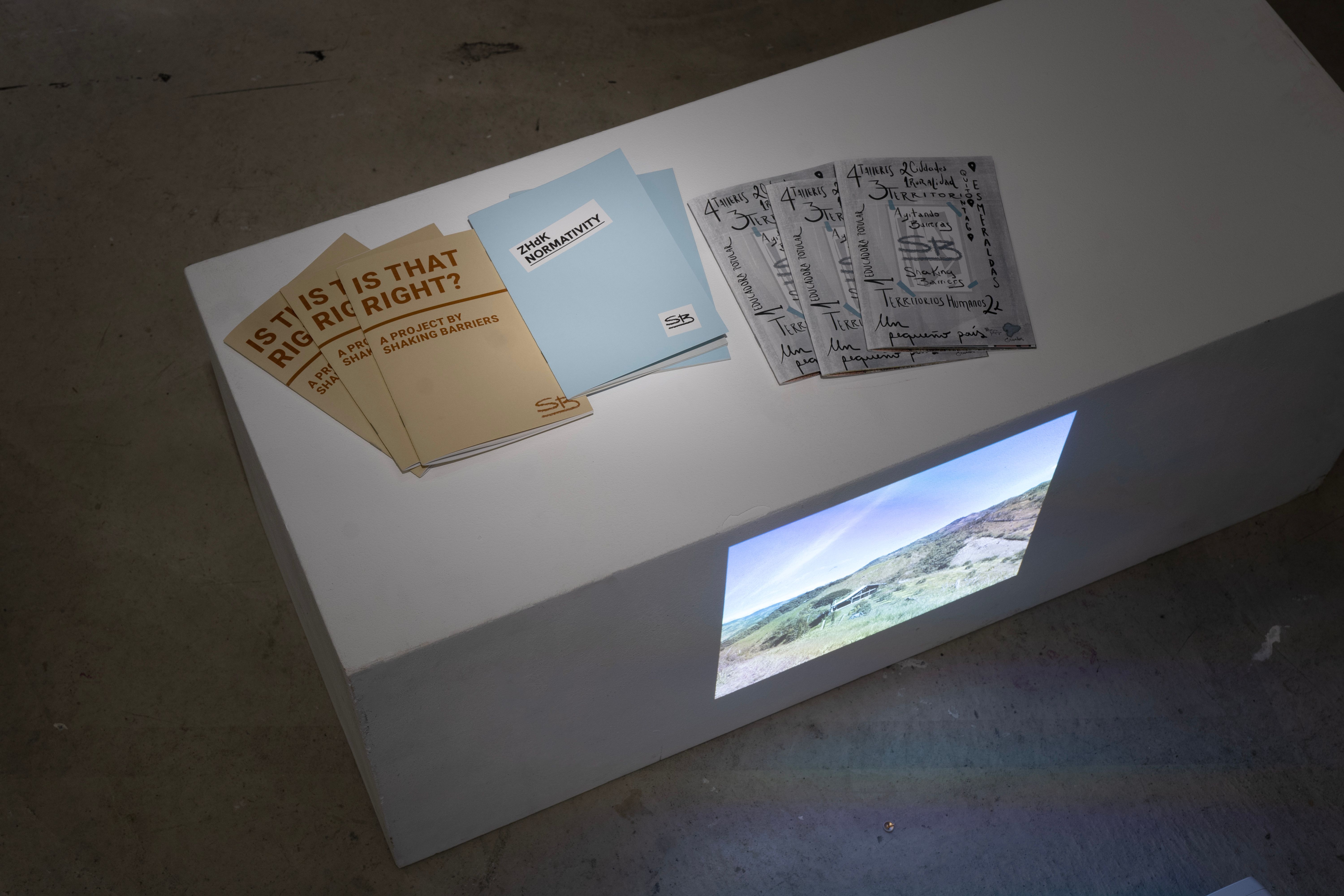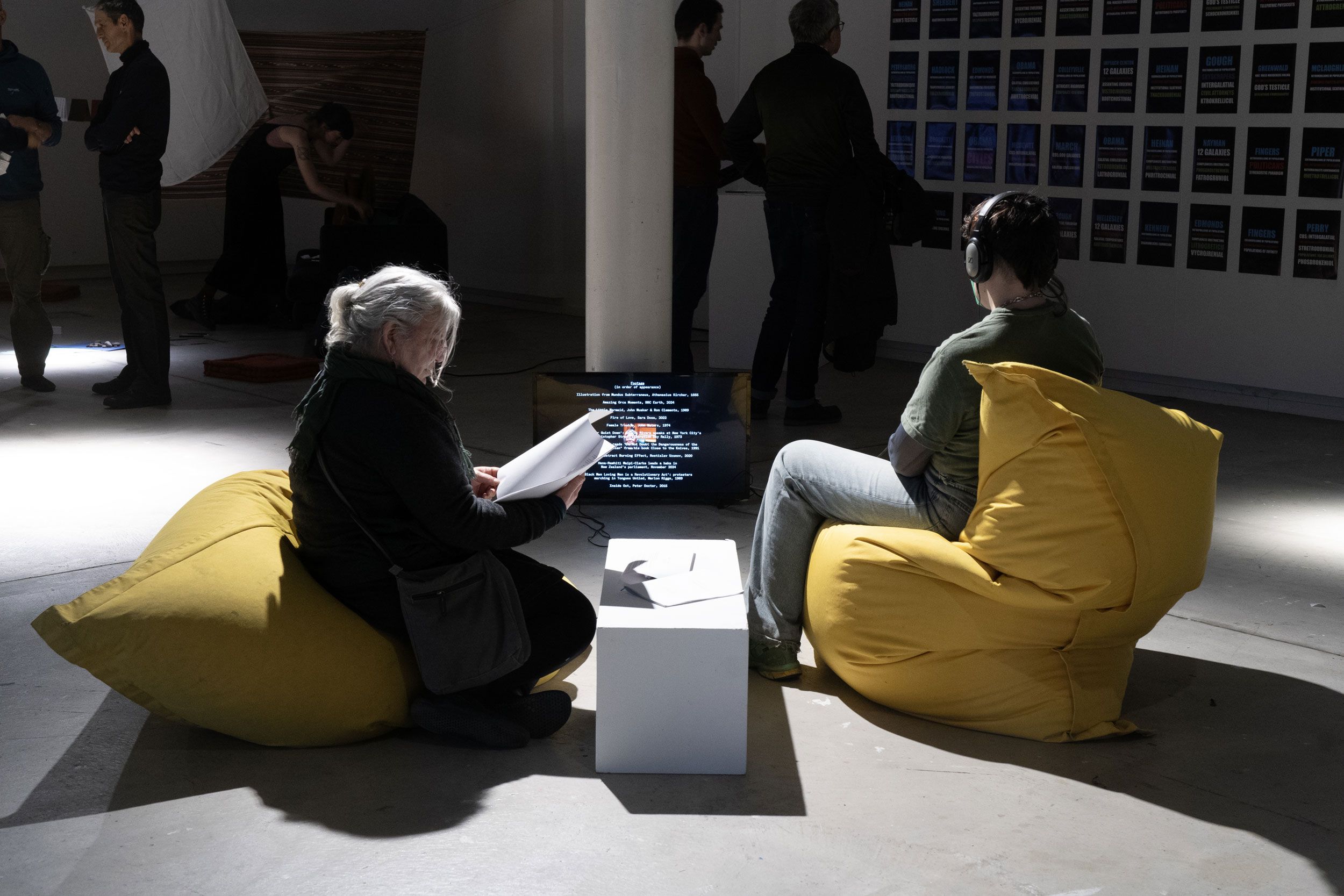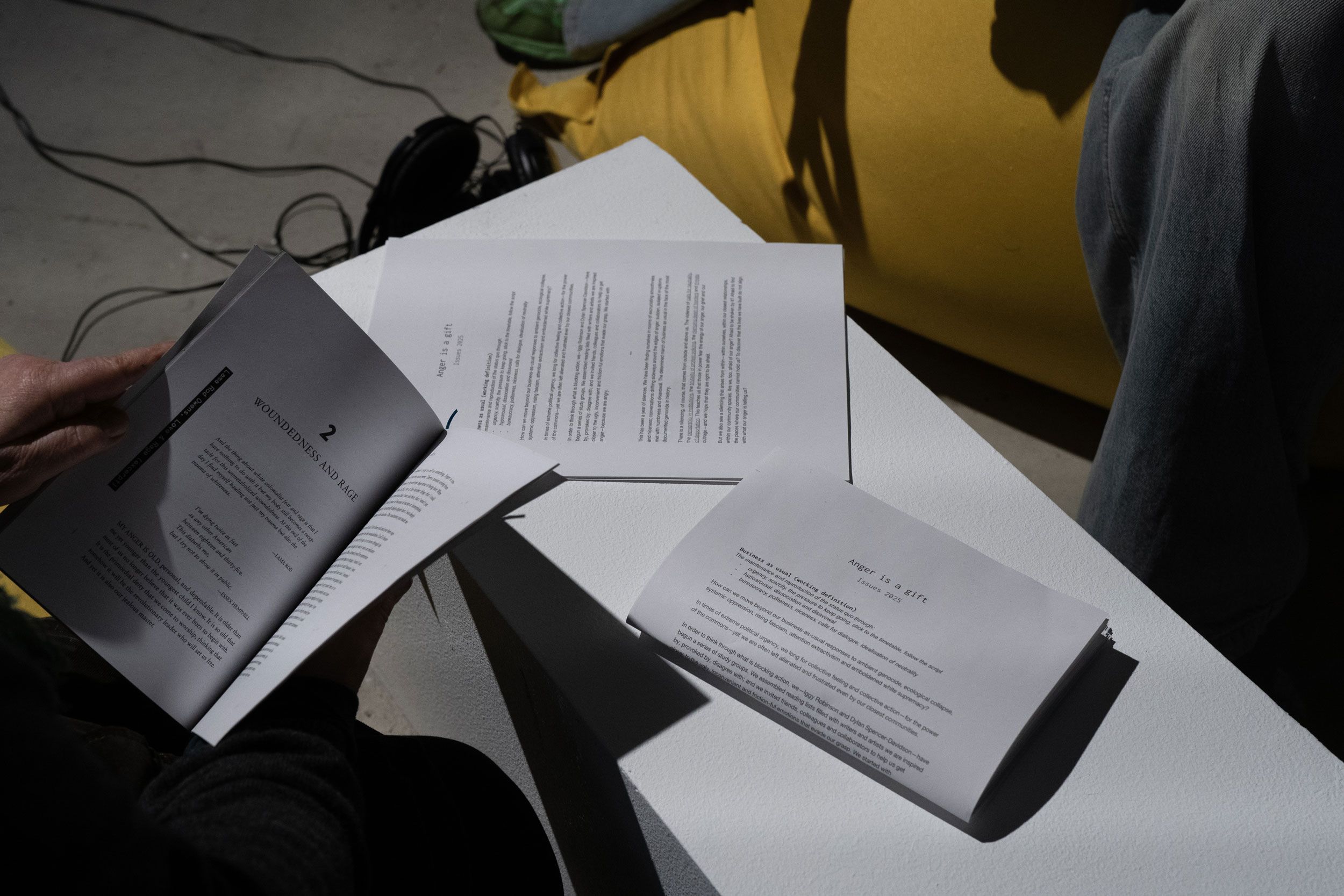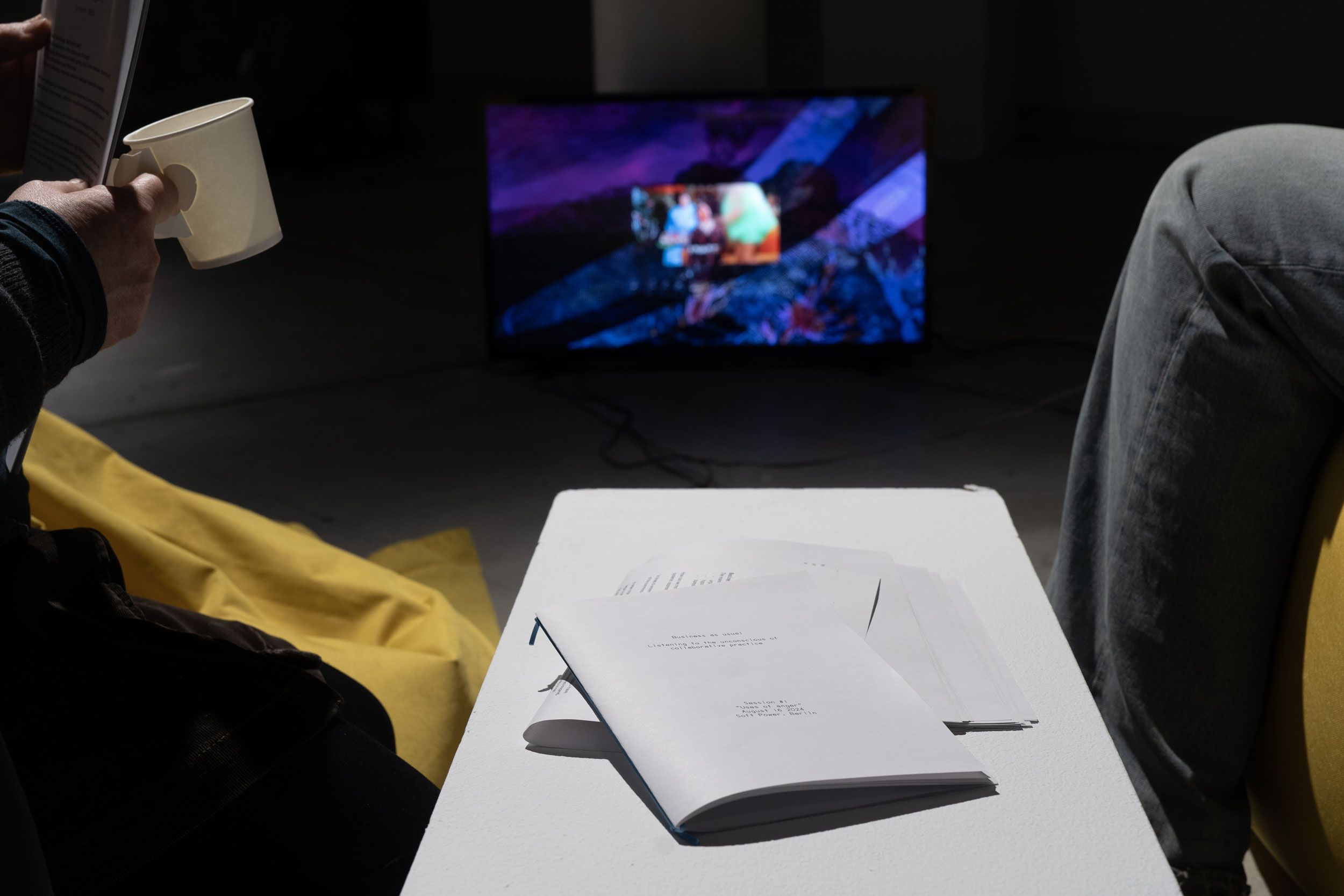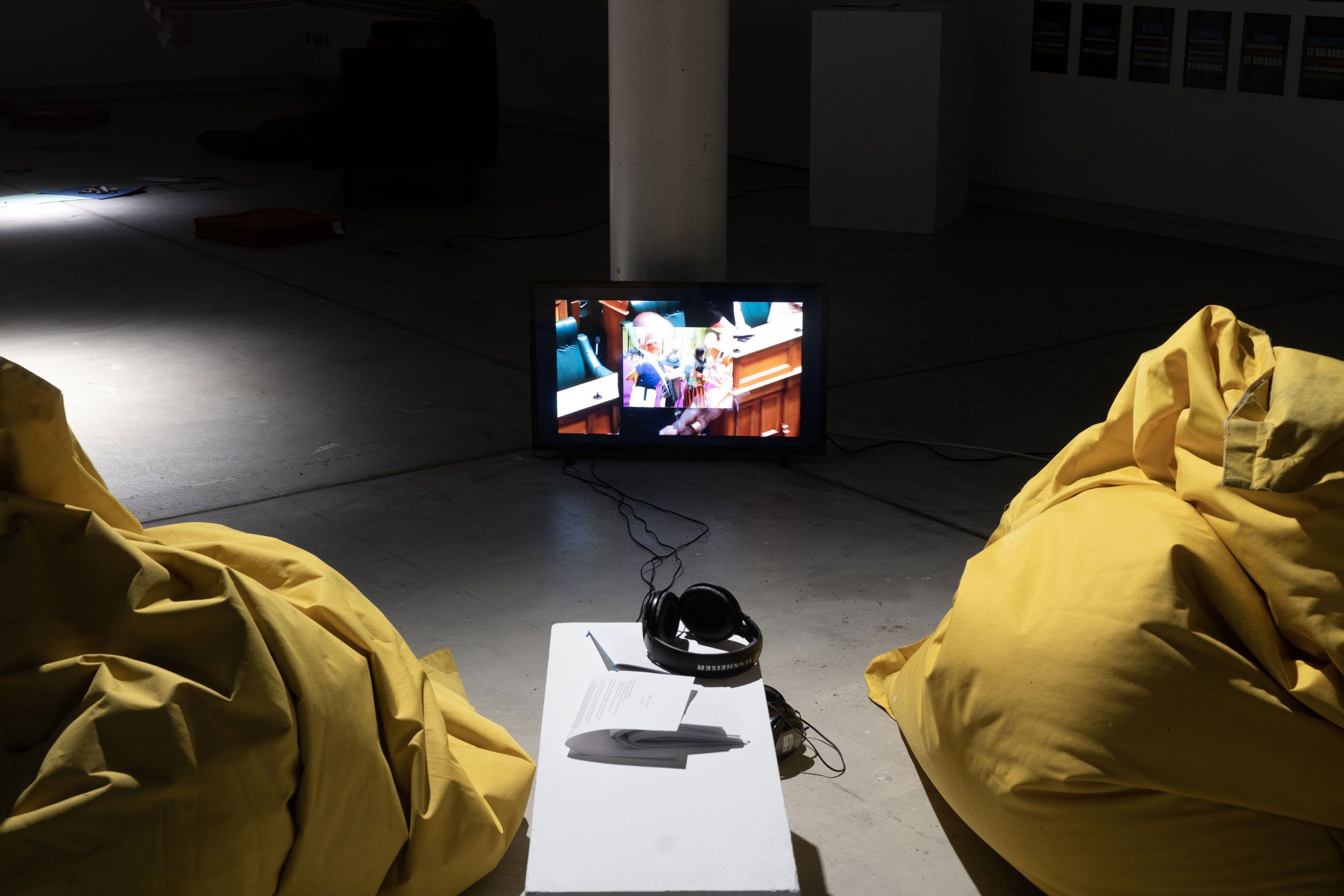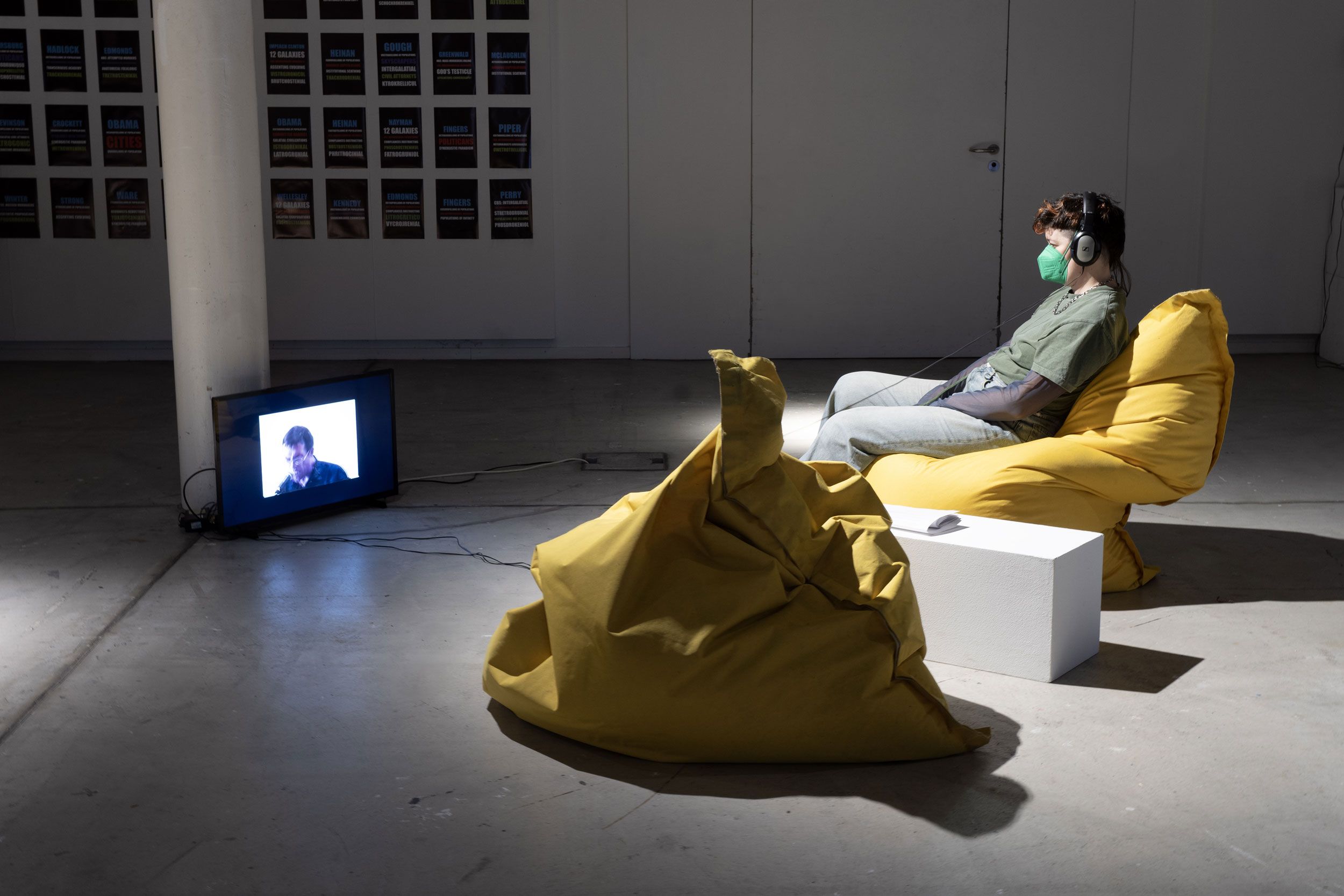When: Saturday and Sunday 8 & 9 February 2025, all day Where: ZHdK, multiple locations Open to: All ZHdK Student and Staff as well as the General Public. Online or hybrid participation is available. Language: English
SoC Assembly 2025
Edited by Caroline Schmidt
The School of Commons (SoC) Assembly 2025 is a two-day gathering for exchanging and the (alternative) reproduction and circulation of knowledge that seeks to approach, contend, and complicate the question: ‘How to Assemble in our current social, political, economic, ecological times?’
In contrast to traditional symposium structures of knowledge ‘giving’ and ‘receiving’, the SoC Assembly borrows from commons-based models for alternative knowledge production and circulation, to create an exchange-space based upon a reciprocation economy of mutual support and mutual sharing.
For the SoC Assembly, we have invited a series of guest facilitators from across specialisms, experiences, contexts, and disciplines who will each convene a working group, organised around core topics and issues that we believe Assembly participants, and their communities face in their daily work and life. These topics include tools and schools for improper education, “seed-time” as a method for addressing bio cultural urgencies, visual community organising, expanding notions of care through listening and sound, and the mapping of visible and invisible commons.
During the Assembly, facilitators, participants, and current and former SoC cohort participants will be invited into an active exchange of transdisciplinary inquiry, including the sharing of methods and frameworks, establishing of environments for learning, and raising of questions and propositions, unbounded from discipline or taxonomy.
The SoC Assembly encourages explorations into alternative ways and workings to produce, distribute, and make public alternative forms of knowledge and to create new forms and scopes of ‘assembling’ in the broadest sense. In doing so, bridging theory with practice, thinking with doing, and providing new frameworks for organising, practicing, and researching as methods for transferring these approaches into differing environments, scales, and contexts.
Over the two-days, the SoC Assembly will be organised into a Morning Program* dedicated to Working Groups for learning and exchanging, convened by guest facilitators, and an Afternoon Program* of exhibitions, lectures, and workshops, organised by the SoC Cohort 2024. The event will culminate in an Assembly Podium that brings the guest facilitators, SoC participants, and audience together to reflect upon and gather the means, modes, and forms of and for expanded assembling that have emerged over the weekend.
Working Groups 1 - School of Improper Education Hybridly facilitated by Fiky Daulay & Nuraini Juliastuti, KUNCI Study Forum* (Yogyakarta, Indonesia) *joining digitally* The workshop aims to utilise the existence of the temporary group formed through the School of Commons as a medium to problematize the meaning of works, resting, common pot and solidarity. As prompts, we want to use these following keywords: language/translation, updating individual projects, archiving and networking, trans-solidarity redistribution, sustaining networks, economy of attention, distraction, scrolling, deep observing, categorizing information/knowledge, visibility, understanding of archives. What kinds of newly imagined networks emerged from disparate and undefined geographical locations? If we were to define it, what formless formation would it be? How could the network foster care, online and onsite?
2 - “Seed-time”: How to metabolize our biocultural urgencies of today? Facilitated by Zoë Heyn-Jones and Ana Rivera, Materia Abierta (Mexico City, Mexico) In this Assembly Working Group, members of Materia Abierta will share their experience developing spaces for learning and thinking together as an opportunity for political organizing. The project aims to recalibrate their learning practices through their recent efforts of developing a small community garden in their studio patio that has softened their pedagogies around the indecipherable temporalities of the garden and its material needs — something they have been loosely approaching as "seed-time". This Assembly Working Group will engage in a rehearsal to metabolize a will to gather around the biocultural urgencies of today. We will exchange seeds, we will sow alliances.
Together we will consider the temporal wavelengths of a garden. The act of planting a seed is brief but the time spent before harvesting has longer temporalities and different needs (nurturing, watering, composting, for example). The group will reflect on the ways seeds travel and the technologies they have developed to sustain time. We will embark on exercises of temporal and spatial inflection on the ways we assemble as being (de)organized in service of caring for other expressions of life.
3 – How can community organisers use drawing? Facilitated by Rosalie Schweiker, Migrants in Culture (London, UK) In this Assembly Working Group Migrants in Culture will share practical skills on using drawing and design for community organising, especially for people who are working towards border abolition and migrant/racial justice. We will share easy ways to use drawing in your meetings, protest, and organising work. You don't have to have any skills or experience in drawing, it's not about good or bad, it's about practice. This Assembly Working Group will be especially interesting for designers and artists who want to use their skills within social movements. It will also try to uplift and support community (and other political) organisers who want to integrate art & imagination-based work into their work.
This Assembly Working Group can be facilitated in English and/or German upon request.
4 – “Phonocene”: how can a new era of expansive care be listened to and assembled through sound? Facilitated by Yuri Tuma, Institute for Postnatural Studies (Madrid, Spain) Earth's symphony extends far beyond the ozone layer, weaving its way into the very fabric of life and the cosmos. From the tiniest microorganisms to the vast expanse of matter, we are constantly transformed, both mentally and physically, by the sonic and cultural vibrations of our urban and natural environments. Yet, these intricate entanglements often go unnoticed by a culture fixated on the visual, failing to recognize listening as a powerful tool for self and collective care. By Giving attention to the sounds around us, we can unlock exciting possibilities for forging new systems of kinship and interconnectedness.
This Assembly Working Group considers, what happens when we try to understand the planetary siblinghood between all sentience through the way we listen and communicate to the diversity of what is the “other”? By delving into the exploration of multiple fields of research like sonic technology, listening methodologies, queer theory, colonialism, field recording, and interspecies communication we will collectively shift our perspective towards the Phonocene, a vision of the future that proposes sound and active listening in the center of an era, a new era of expansive care, that resists capitalism’s hunger for growth, a slower era that promotes radical ecological change.
5 – Mapping the Commons and How They Are Sustained Facilitated by Sepp Eckenhaussen, Caradt Research Group of the St. Joost Academy/ Institute of Network Cultures (Amsterdam, NL) In this Assembly Working Group, participants will create a space of study and learning around the relationships between art and political economy. This is facilitated through a series of collective exercises which (counter)map the alternative economies and activist practices surrounding the making of commons and collectivity, as well as the material and immaterial realities which directly inform them.
In this workshop, Sepp Eckenhaussen will facilitate a process of the collective (counter)mapping of projects and initiatives of the participants, looking at the economies, infrastructures, and organisational models—both visible and invisible, formal and informal—surrounding these projects, as possible routes towards the commoning of resources and imaginations.
***************************************************************************
Exhibition Contributors: Mariam Rafehi Viviane Tabach & Nicole Candian Loren Beard David Behar Perahia & Dan Farberoff Julian Pavesi, Mira Tyrina & Ana Tijeras Cassie Thornton Chris Hamamoto, Jayoon Maeng & Sohui Kim Iggy Robinson & Dylan Spencer-Davidson Tasnim Elboute & Samirah Siddiqui Ulrich Kneisl, Laura Margarete Bertelt, Angelika Hinterbrandner & Urban Equipe Anne Lee Steele & Mirko Febbo
Guest Facilitators: Fiky Daulay & Nuraini Juliastuti, KUNCI Study Forum* (Yogyakarta, Indonesia) *joining digitally Zoë Heyn-Jones and Ana Rivera, Materia Abierta (Mexico City, Mexico) Rosalie Schweiker, Migrants in Culture (London, UK) Yuri Tuma, Institute for Postnatural Studies (Madrid, Spain) Sepp Eckenhaussen, Caradt Research Group of the St. Joost Academy/ Institute of Network Cultures (Amsterdam, NL) Co-Facilitator: Luise Willer Documenters: Anna Kuecking Caroline Schmidt Invited Participants: Aline Hernández, CASCO Art Institute Working for the Commons Sophie Mak-Schram, Independent Researcher Collaborator: Tuuli Maria Utriainen, IdeaSquare (CERN) Exhibition Curation & Production: Mira Tyrina Julian Pavesi Organisational and Documentation Support: Viviane Tabach Samirah Siddiqui SoC Assembly Working Group: Mira Tyrina Viviane Tabach Julian Pavesi Alumn* Network: Letitia Calin Luise Willer Anna Kuecking Lena Pozdnyakova Digital Assistance: Noe Arnold Gaëtan Merminod Catering: Aly Khamees Assistance: Maria Velevas
***************************************************************************
SoC Cohort 2024 Program
As part of the School of Commons Assembly 2025, the SoC 2024-5 cohort, Alumn* Network, and invited guests will organise a series of workshops, discussions, and exhibitions that explore the potential of collective care, embodied practices, and interdependent relationships. These activities are designed to create space for reflection, learning, and co-creation across various disciplines and perspectives.
The program will reflect on the act of ‘assembly’; observing how we come together as individuals, communities, and collectives. It will explore how the process of assembling — whether through physical, emotional, or conceptual means — can foster solidarity, shared knowledge, and collaborative transformation. Participants are encouraged to reflect on the political, social, and ecological dimensions of coming together, as well as the practices that shape these processes. Through workshops and discussions, contributors will explore practices that bring attention to material, artistic, and organizational processes. Exhibitions and performances will also be part of this expanded program, offering creative approaches to understanding collective action and care.
The programme will invite participants to reimagine collective action in ways that are more inclusive, sustainable, and relational. This space will encourage experimentation with alternative models of assembly, play, emphasizing care, collaboration, and ecological responsibility. By engaging with these themes, the SoC Cohort programme seeks to foster meaningful connections that extend beyond the event itself, rethinking how we come together in response to today’s challenges.
Workshop: Somatic practices for presencing/co-creation Mariam Rafehi
This workshop invites participants to engage with embodied practices as a way of rethinking human-machine relationships and the sensory shifts they produce. Through a combination of somatic exercises and collaborative explorations, we will ground ourselves in sensory experiences and use them as a starting point to reimagine how these interactions unfold. Together, we will question which role embodied practices should take in collaborative encounters. This session emphasizes active engagement and conceptual reflection. Workshop: Delusions of Collaboration or Strategies for Sustainable Practices Co-Making Matters (Viviane Tabach and Nicole Candian)
The workshop delves into the nuanced dynamics of collaborative practices, focusing on sustainability, shared responsibility, and the tensions that often remain unaddressed in co-creation. Through smaller group dynamics, collective writing, and open debates, participants will explore the questions: What does sustainability mean in the context of collaboration? How do the fluid roles of host and guest influence the distribution of responsibilities? How can tensions be recognized and addressed constructively in collaborative environments?
Participants will engage in exercises that help identify conflicts, clarify roles, and discuss approaches for resolving challenges that emerge in collaboration. By reflecting on their own practices, they will co-develop strategies to foster transparency, accountability, and equitable resource sharing. This workshop aims to create a space where participants can interrogate the complexities of collaborative relationships and collectively identify ways of working together. Workshop: The oceans are a global commons Pharma Waters, Pharma Selves, Loren Beard (Hybrid)
The oceans are a global commons—belonging to everyone, and no one, at the same time. In recent decades, microplastics have become a pervasive presence in these waters, acting as a new form of environmental intrusion. These tiny plastic particles, originating from everyday products like packaging and textiles, traverse the global commons and infiltrate marine ecosystems. This expansion makes evident human impact beyond visible pollution, with microplastics entering the bodies of aquatic life, disrupting marine behaviors, and releasing chemicals into the water.
In response to these anthropogenic impacts, feminist, decolonial, and critical writers call for a restructuring of human-non-human relations. These lineages offer an ecosophical approach, or one which co-considers human subjectivity, social relations, and the environment, to re-imagine the human-non-human. Following this framework, this project asks: How are human and non-human subjectivities intertwined in an era of microplastics? And how can we envision healing across ecologies, even while plastics act as an ecological bridge?
This project employs both social scientific and artistic methods to engage with these questions. Drawing from reflections with professional and citizen scientists, plastic ephemera, and fish sounds, it will culminate in a digital eco-archive, mapping the relations across humans, microplastics, and marine life. It will also cultivate a shoaling-centered praxis, mimicking how fish gather in interdependent communities, as a way to transform human-non-human community life. Workshop: The Commoning Lab by Common Views David Behar Perahia, Dan Farberoff
Common Views will introduce their Commoning Lab format, using tools and approaches developed during their recent project in Naples, Italy. In this facilitated lab we will engage in an open exchange and common exploration, allowing for a horizontal discourse in an atmosphere of inclusion and diversity. We welcome participants who would like to share from their knowledge and skill-sets. Together, we will be advancing future commoning perspectives, drawing on the overarching themes of interconnection, complexity and emergence.
Collective Exhibition With works by:
• can a machine mourn for the climate?
• if a oil spill could speak, what would it say?
• what can machine mimicry tell us about narratives of oil (and its spillage)?
using data about world’s largest oil spills, ‘elegies for oil spills’ generates speculative artifacts about environmental disaster – printed in the form of a (recycled) receipt.
every image and poem both here and on your receipt has been generated by AI (specifically, ChatGPT – one of the largest language models in the world).
‘elegies for oil spills’ is part of the series ‘poetic tactics to counter extraction (and other ways to train attention)'. it is a collaboration between Mirko Febbo, a sculptor turned data visualisation and creative computation expert and Anne Lee Steele.
In trying to understand perceptions of decolonial academia within Swiss universities, with focus groups in SoC ZHdK and University of Bern’s Wyss Academy of Nature, Project In/Visibility crowdsourced a collective definition of decolonial education. The exhibition maps our process-oriented, dialogic and collective writing from previous workshops, and invites visitors to actively participate in dismantling and reimagining academic spaces.
This interactive installation invites visitors to engage in a living dialogue on decolonial education. A large chalkboard, layered with transparent plexiglass panels, becomes a canvas for collective reflection. Participants are encouraged to write, erase, and rewrite their thoughts, definitions, and experiences related to decoloniality in the university classroom, reflecting the collective nature of decolonial education spaces.
Through the act of layering voices — chalk on board, markers on plexiglass, and sticky notes affixed to the surfaces — this wall captures the fluid, evolving nature of decolonial knowledge. Prompts such as “What does decolonial education mean to you?” and “How can grassroots movements disrupt the ivory tower?” guide participants to reflect and respond.
Each contribution builds upon or disrupts the previous ones, symbolizing the ongoing process of dismantling and reimagining the structures of the University. This is not a finished manifesto — it is a space for constant negotiation, dialogue, and possibility.
The Frank Chu Archive will showcase a collection of posters created using the lore of the 12 Galaxies, a conspiracy theory developed and promoted by San Francisco based serial protestor Frank Chu. This installation will be paired with the launch of a publication about the potential of conspiracy theories as an organizing method.
This video calls on queer ancestors, elders, teachers and friends to guide us through our questions. We turn to Audre Lorde, Marlon Riggs, Sara Ahmed, Reem Shelhi, Lama Rod Owens, Susan Stryker, Donald Winnicott, CA Conrad, and the participants of the SoC Business as Usual study group to help us hold our anger collectively.
Access to housing is a fundamental aspect of our lives, shaping our living conditions and connection to the city we inhabit. The right to housing is not only a matter of social justice but also takes on new urgency in the face of the climate crisis, which exacerbates the pressing global housing crisis. Zurich, like many European cities, faces a growing housing crisis. Despite its wealth and status as a safe global financial hub, the city's housing challenges have intensified in recent years, undermining social equity and ecological sustainability.
Working through a crisis together: We invite you to join us in exploring the situation in Zurich—from political opportunities to societal impacts. By attempting different approaches for collecting information, and making this visible, audible ,and even perceptible, we aim to lower barriers and include more voices. Embracing the chaotic overlaying of methods and learning from various perspectives can help us collectively shape strategies, tools, and methodologies.
The Shaking Barriers Collective is excited to share two new publications that delve into cultural rights and inclusion in the arts. Our work focuses on challenging existing barriers and promoting equity, and access within cultural spaces. Join us for a discussion on the importance of inclusivity in artistic practices and how we can create a more just and representative cultural spaces for all.
“In birthing my rage, my rage has rebirthed me.” Susan Stryker
What are you angry about? How do you relate to your anger? How do you care for it? When do you act on it? When do you go silent? How do you feel when people around you are angry? Do you hear anger differently depending on who voices it?
Who taught you what to do with your anger?
When is anger empowering, transformative, frightening, joyful, shameful, distracting, overwhelming, necessary, dangerous, revolutionary?
How can we be angry together? How can we tune in to the information and energy anger contains? How can we be transformed by it?
***************************************************************************
The Future of Collaboration Collaborators: IdeaSquare (CERN), School of Commons (ZHdK), Team Members: Amy & Gabriel (SOC)
As part of the workshop series: The Future of Collaboration, co-facilitated by IdeaSquare (CERN) and School of Commons (ZHdK), participants explored how to prepare for a future we don’t yet know. A future in which collaboration of different forms will be inevitable... The question asked of them: what will these collaborations look like in our near and distant futures?
The results of this exploration are a series of posters displayed simultaneously at ZHdK and CERN which depict our future unknowns and responsive methods for collaboration. The posters were created by workshop participants and encapsulate different methodologies, questions, approaches, forms, and styles. Together showcasing the breadth and depth ofthe future of interdisciplinary collaboration.
***************************************************************************
Learning Commons (in 3 parts) SoC Alumn* Network
This is a dedicated space to discuss, practice, and explore gathering and togetherness with a focus on relational aspects and care.
We will conceptually and practically address the following questions: How do people come together to express care and form relational practices? What constitutes meaningful connection in various forms of gathering? As we examine how relevance and significance emerge within these interactions, we also aim to explore how different relationships are formed and institutionalized—and conversely, how they can transcend institutional constraints, extending beyond formal structures, timelines, and project boundaries.
The event will be offered in a hybrid format, allowing for remote participation, and will connect Alumn* communities, the current cohort, and the general public. It integrates theoretical and practical insights on organizing and assembling as practices that foster both short-term and sustained durational relational dynamics, as exemplified within the School of Commons Alumn* Network.
Part 1: Friday - Learning Commons
banden bilden / building bonds / gathering gangs against violence
With a short exercise Anna Kücking and Luise Willer want to invite you to gather and weave new bonds. The SoC Alumn* Network relies on the continuous and versatile engagement of Alumn* with each other. We want to share prompts and exercises to initiate dialogues to find common grounds, to commit to first shared actions, to cater towards these relationships for future networks.
Part 2: Sat & Sun - Wildflower Meadow (Installation) Part 3: Sunday - Before, After, & To be Continued (Discussion)

Amy Gowen
Since 2023, Amy has been part of the leadership team at the School of Commons, Zürcher Hochschule der Künste (ZHdK), overseeing the Publishing and Public Program. In 2024, she was appointed Deputy Director.
Jelena Mair
Since 2022, Jelena has been part of the leadership team at the School of Commons, Zurich University of the Arts (CH), where she oversees our Office, Finances, and Funding & Partnerships.
Marea Hildebrand
Marea has been directing the project since its beginnings in late 2016. With an established background in arts education, she earned a BA in Art Education and an MA in Transdisciplinary Studies, from Zürcher Hochschule der Künste (ZHdK).
Samirah Siddiqui
A marine ecologist, researcher and facilitator.
Viviane Tabach
Viviane is a Brazilian curator, art mediator and artist.
Julian Pavesi
Swiss artist, who’s interest lies in a field of activism, education and art as social action.
Miraslava Tyrina
Miroslava is a curator, performer, journalist and text performative artist.
Sepp Eckenhaussen
Sepp is an arts researcher and organizer.
Fiky Daulay
Fiky is a writer, translator and sound-maker. He is a member of KUNCI Study Forum & Collective since 2017.
Yuri Tuma
Yuri is a multidisciplinary Brazilian artist living in Madrid whose work focuses on the investigation of contemporary narratives related to sonic ecologies through collective practices, sound art, installation, and performance.
Nuraini Juliastuti
Nuraini is a translocal practicing researcher and writer who focuses on art organizations, activism, illegality, alternative cultural production, and everyday practices of vernacular archiving.
Anna Kücking
Anna is a versatile practitioner whose work combines art, research and social work.
Luise Willer
Luise is a producer and art historian whose work revolves around socially oriented artistic practices, particularly their performative moments and organizational forms.
Aline Hernández
Aline is a Mexican art historian and exhibition curator.
Sophie Mak-Schram
Sophie cares about the radicality possible in the 'and' between art and education.
Chantelle Lue
Since 2023, Chantelle has been part of the leadership team at the School of Commons, Zürcher Hochschule der Künste (ZHdK), overseeing the Communications and shaping Public Program.
Lena Pozdnyakova
Lena (b. 1985, Almaty, Kazakhstan) is an artist and researcher.
Letitia Calin
Inclusion Consultant
Mariam Rafehi
Mariam is an interdisciplinary designer and practice-based researcher in emergent media.
Co-Making Matters
A multidisciplinary platform located at Haus der Statistik that aims to foster collaborations and partnerships among practitioners from different fields.
Nicole Candian
Nicole is a Brazilian interdisciplinary artist and researcher.
Loren Beard
Loren, (she/?) is a writer, researcher, and PhD Candidate based at the University of Chicago.
David Behar Perahia
Co-founding member of Common Views, Dr. David Behar-Perahia (Born: Lyon, France) works on the seam between sculpture and architecture, in a site-specific manner, using a diversity of creative languages, such as sculpture, installation, performance, sound and video.
Dan Farberoff
Co-founding member of Common Views, Dan Farberoff (Born: Barranquilla, Colombia) is a multinational, interdisciplinary artist and filmmaker.
Ana Tijeras
Artist who has specialized in innovative education.
Cassie Thornton
Cassie is changing. In the apocalypse, everything must change, including us and the work we value and how we value things.
Chris Hamamoto
Designer, developer, and educator from the San Francisco Bay Area, now living in Seoul and teaching at Seoul National University.
Iggy Robinson
Iggy is a psychodynamic therapist, a facilitator of social dreaming and other queer conversations, and lately, a writer.
Dylan Spencer-Davidson
Artist and compulsive collaborator, eternally preoccupied with questions of how to be together.
Anne Lee Steele
Anthropologist.
Gabriel Hensche
Since 2022, Gabriel has been part of the leadership team at the School of Commons, Zürcher Hochschule der Künste (ZHdK), and oversees the Peer Learning Program.
IDEA Square
The innovation space at CERN
